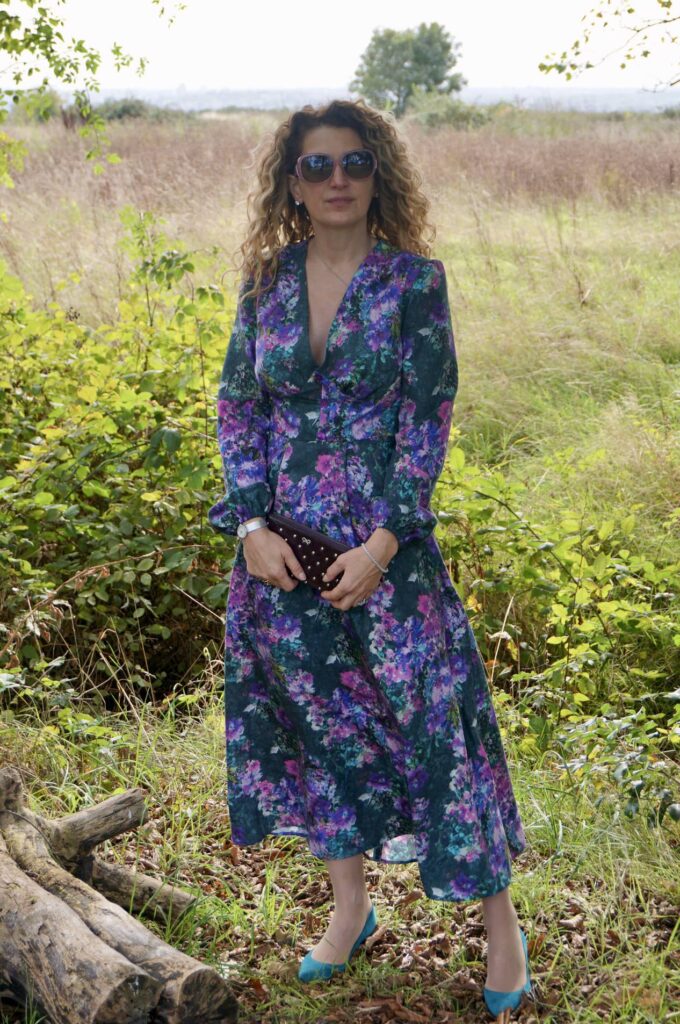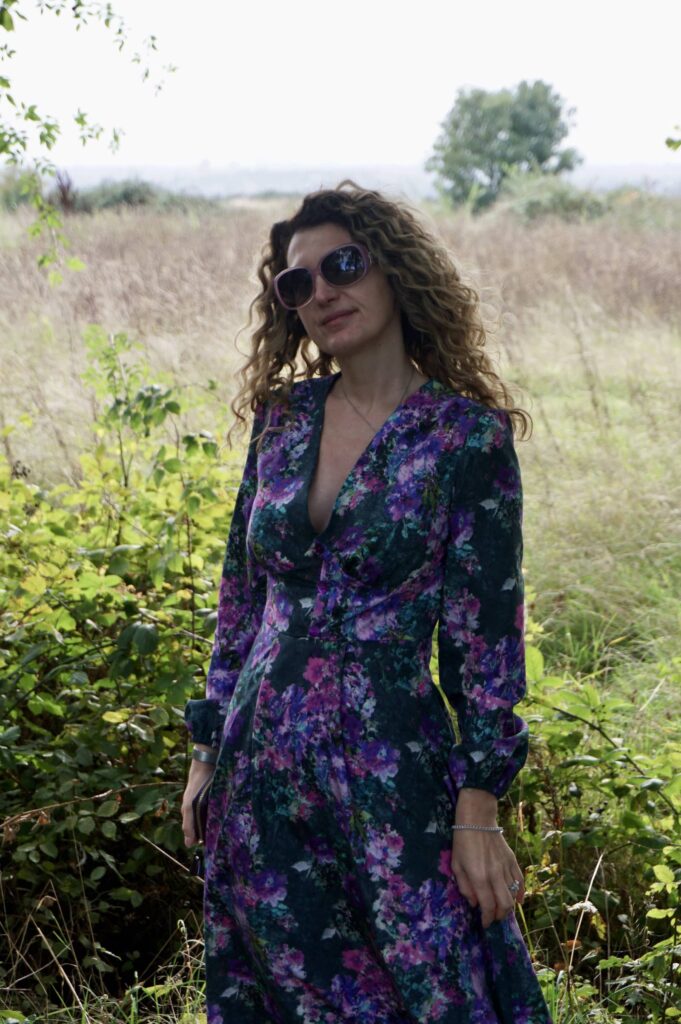Sewing two new variations of the V8630 pattern
Long time no see my sewing friends! Four months is probably the longest time I have ever been away from my beloved blog and I’ve really missed it. But life has been incredibly busy and many things have kept me away from writing and sewing. But here I am!
These are my last winter makes: two dresses, made on the basis of the V8630 pattern, with a few modifications:
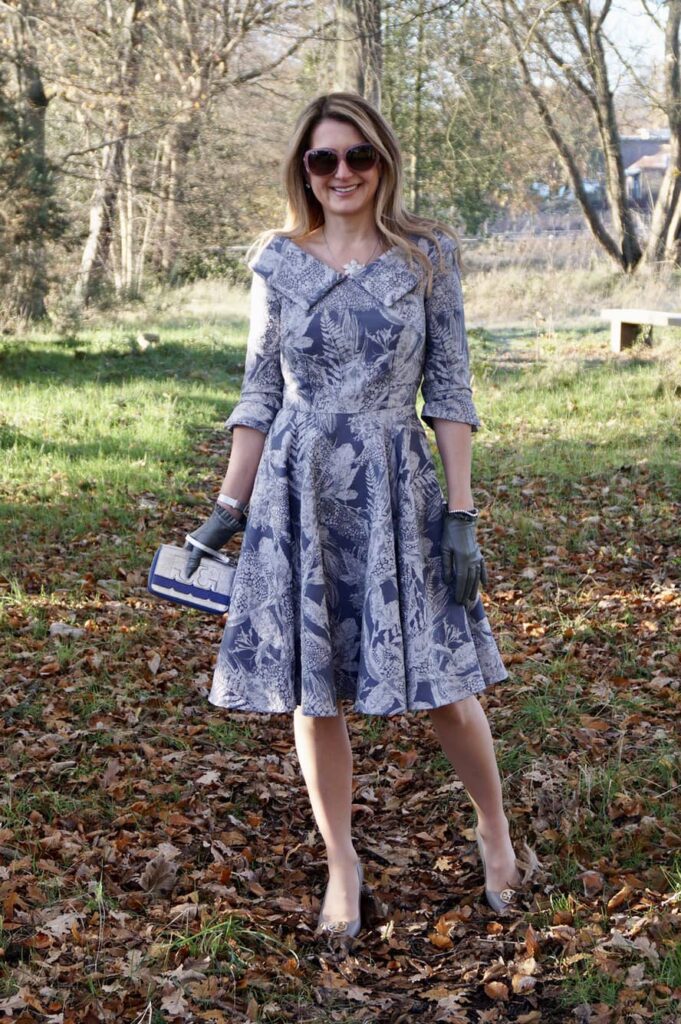
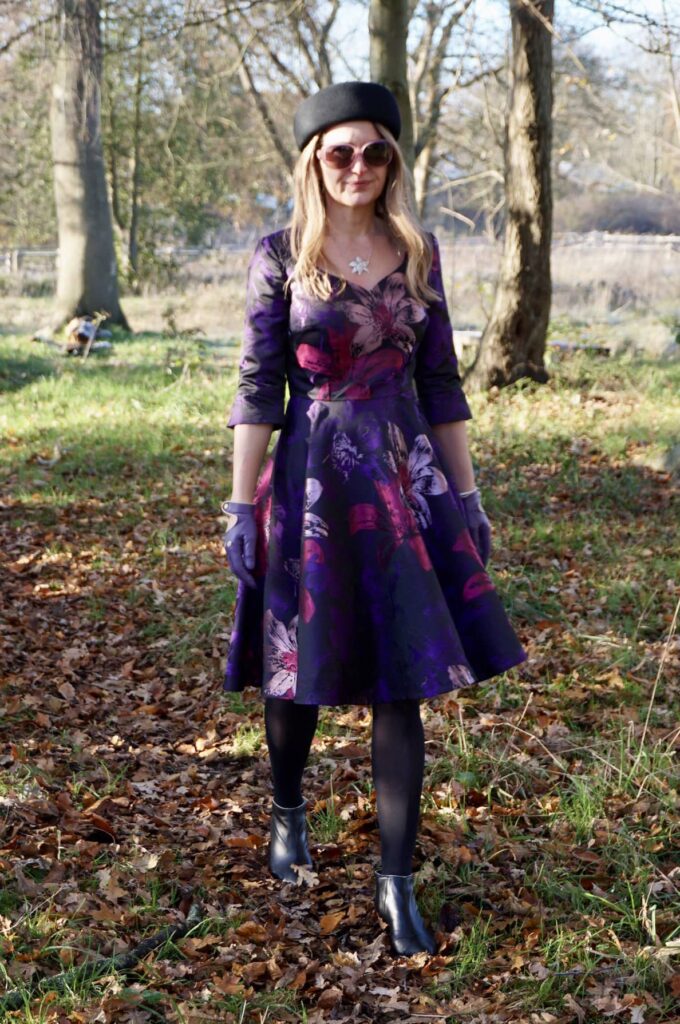
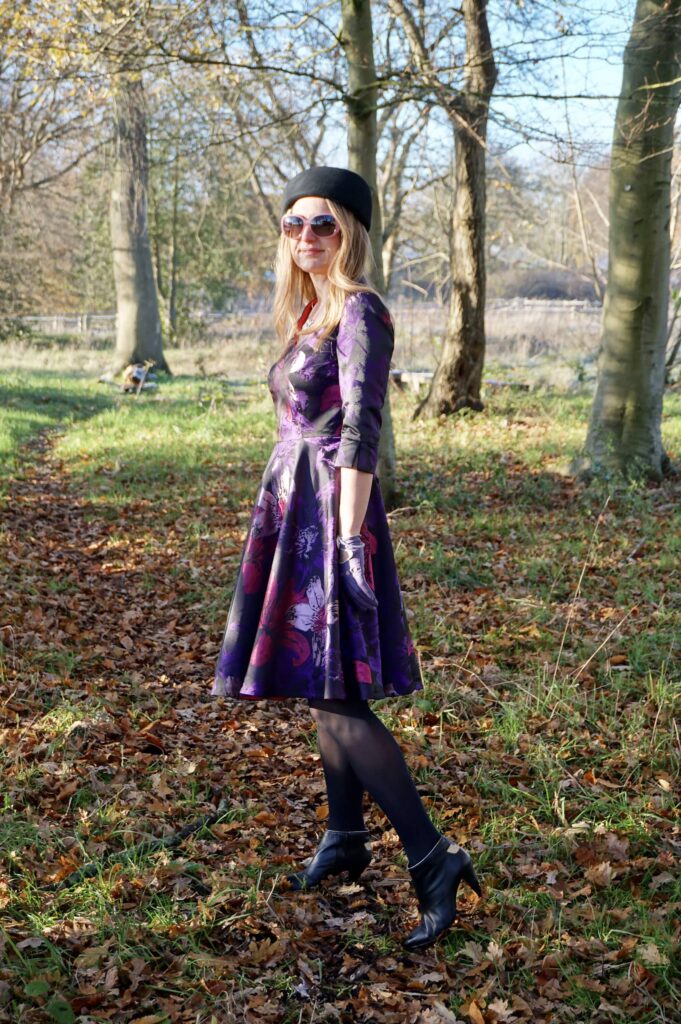
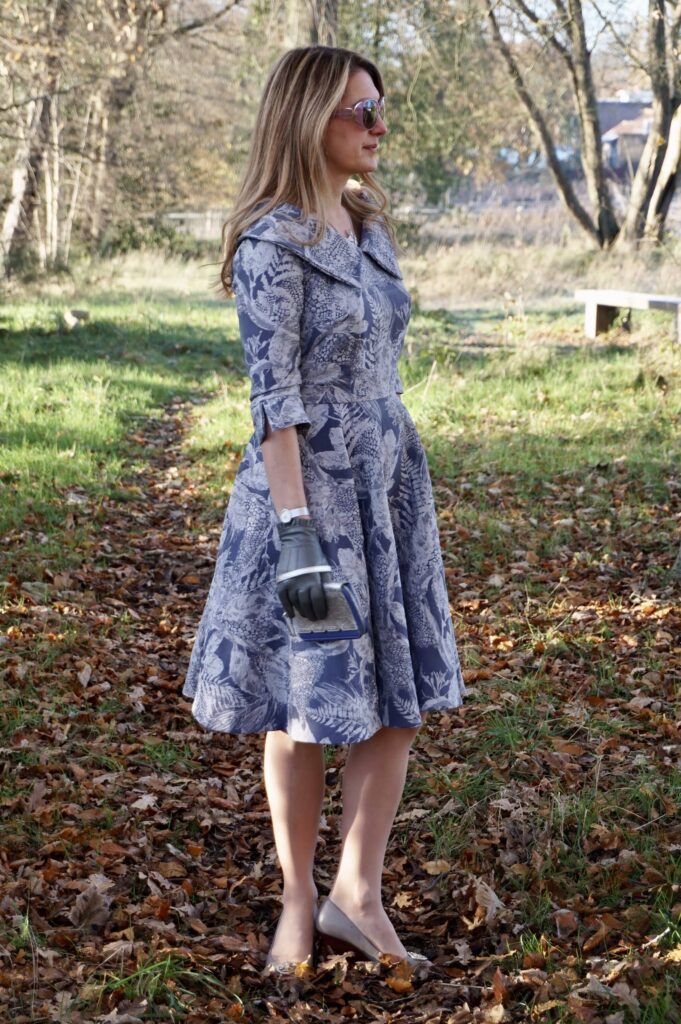
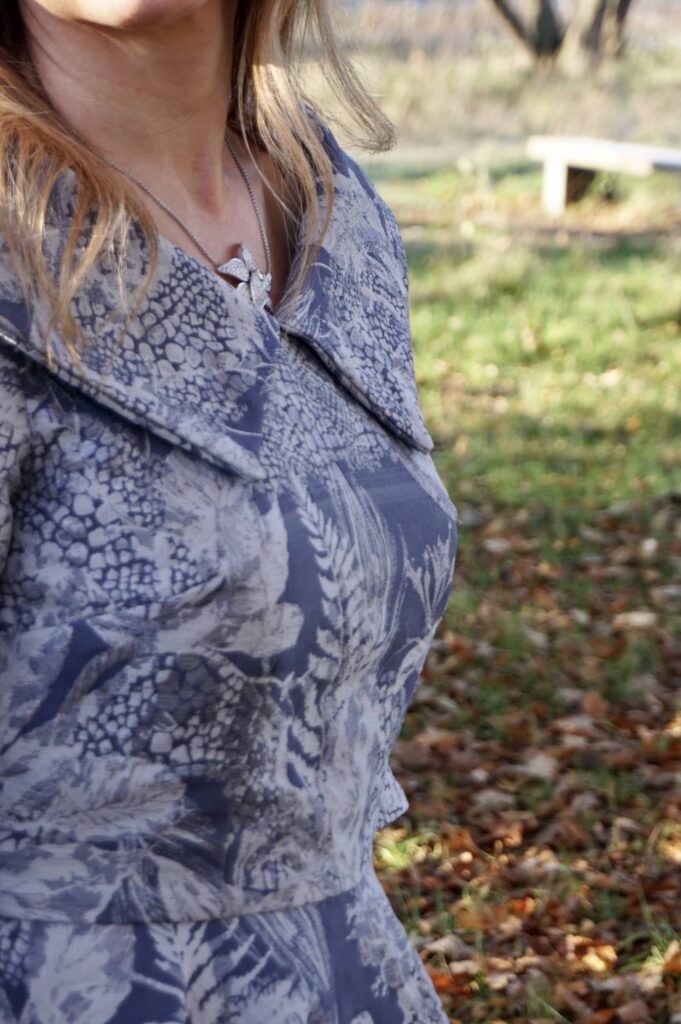
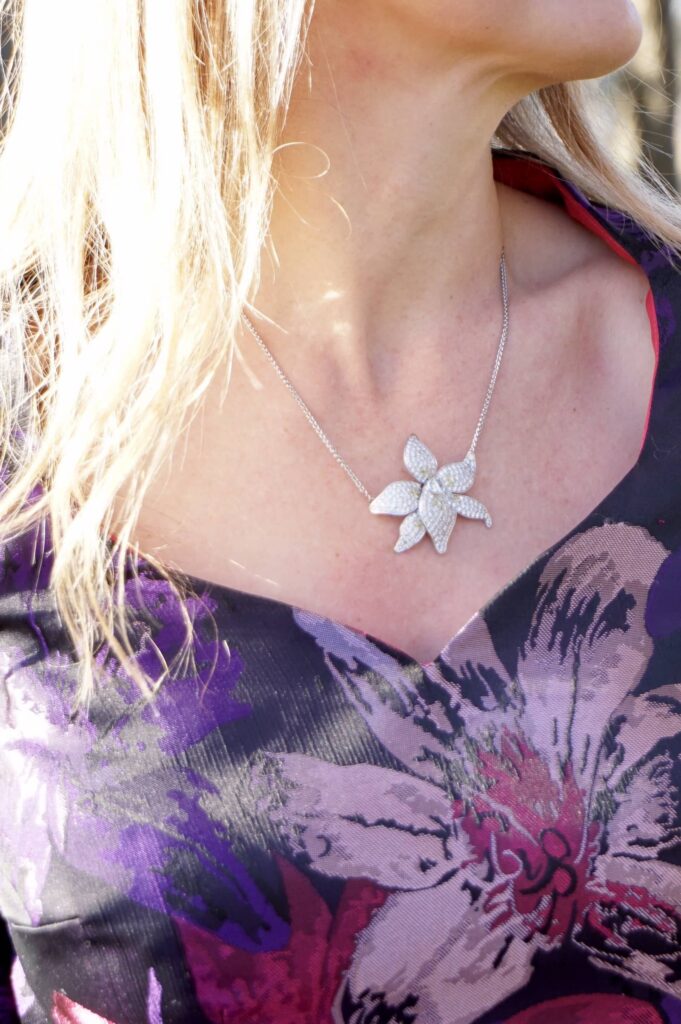
Using the V8630 patterns as my base for many dresses
Is it really the same pattern?
At first sight, you would not think these two dresses are based on the same pattern. Let me confuse you even more by showing you the enveloppe of this pattern…
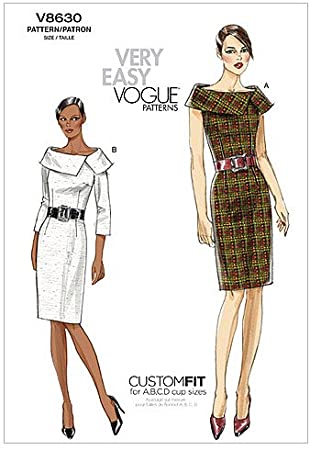
… and the various dresses I have in the past made using it…
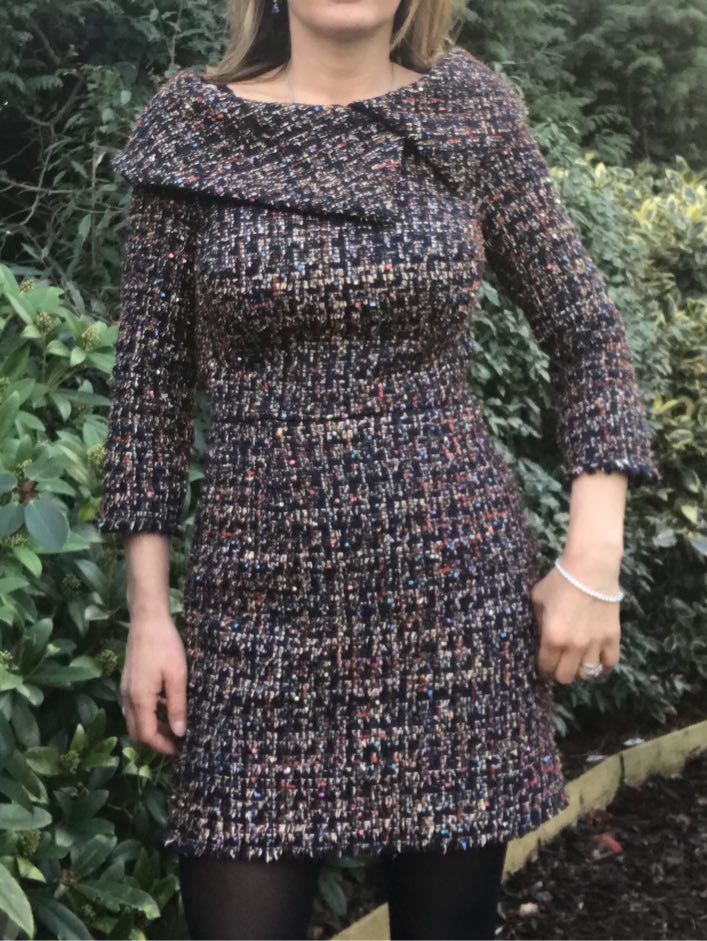
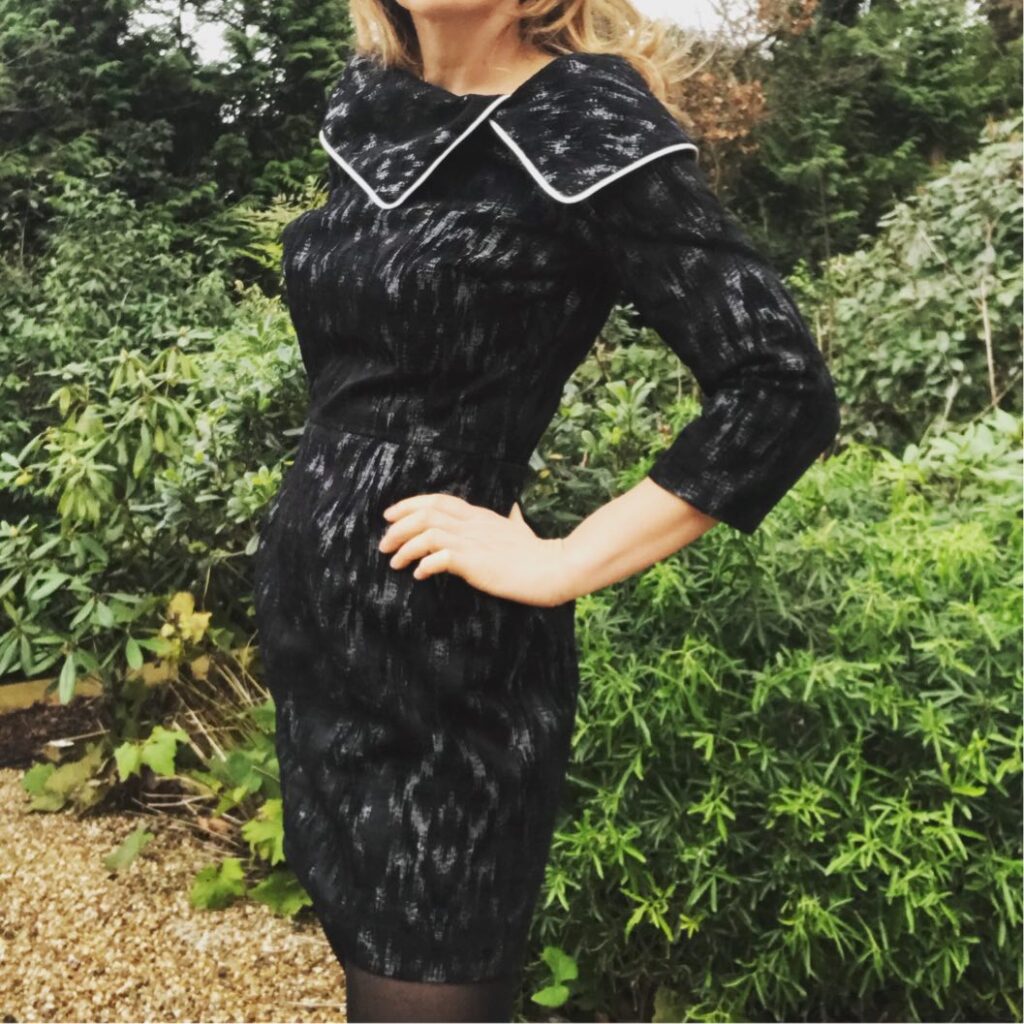

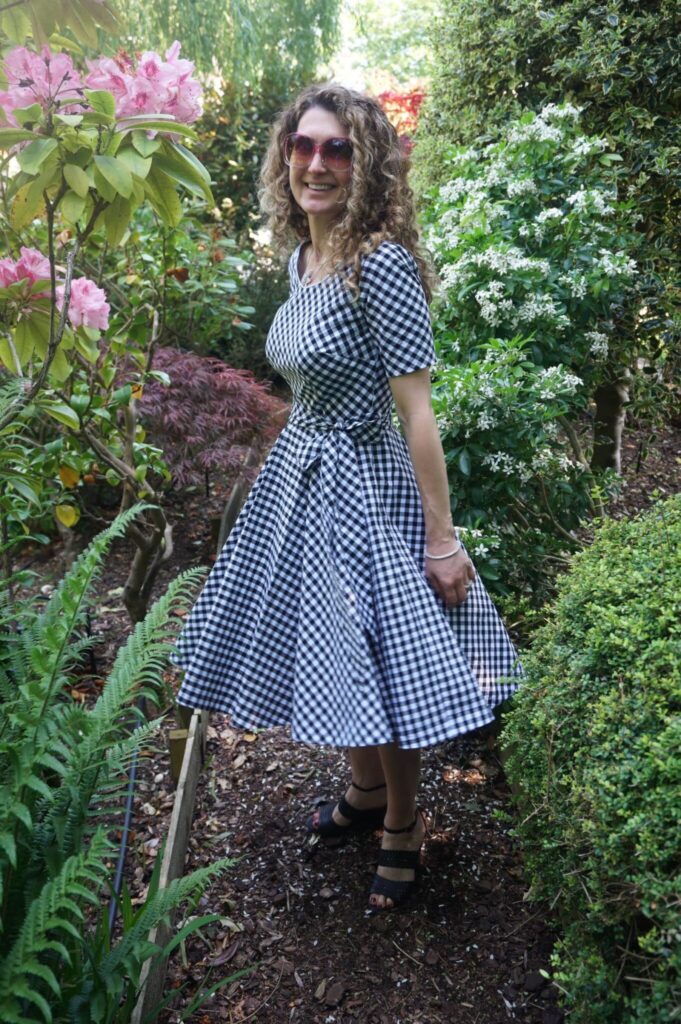
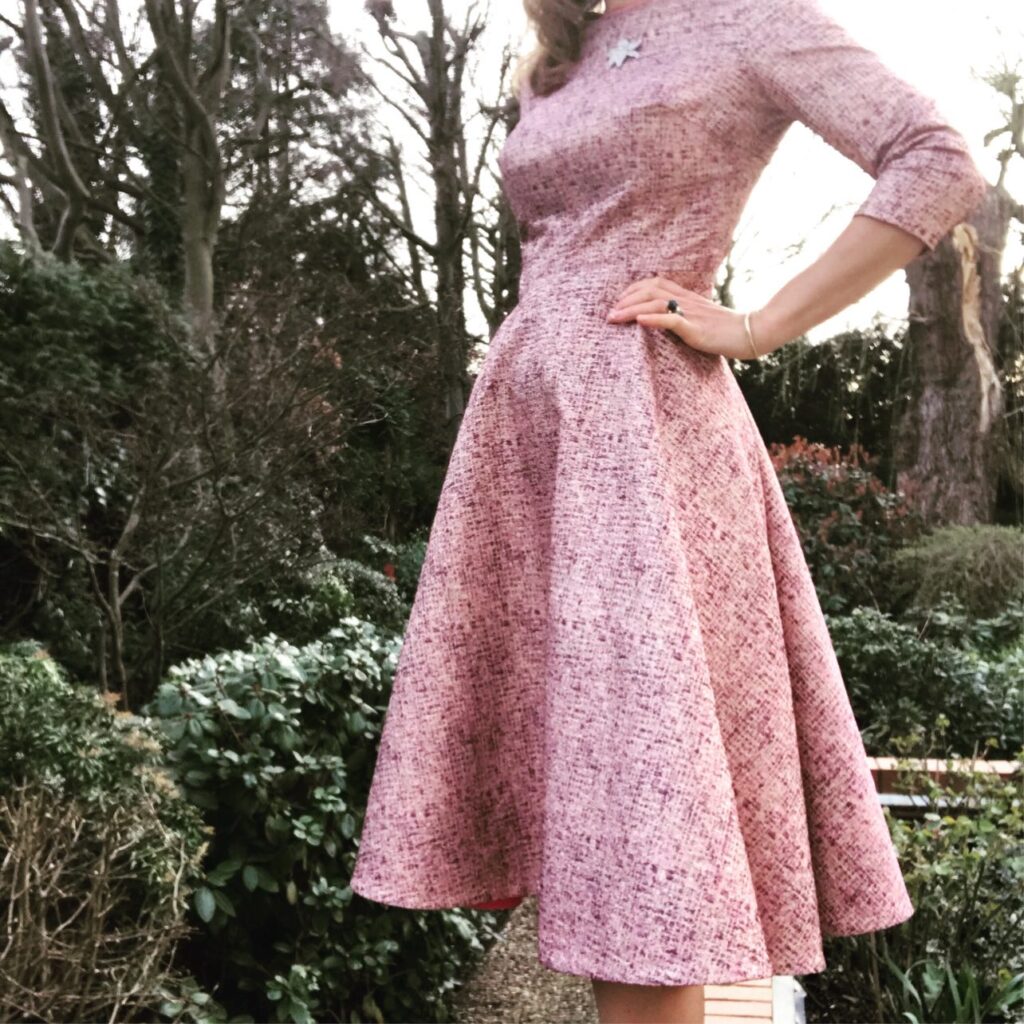
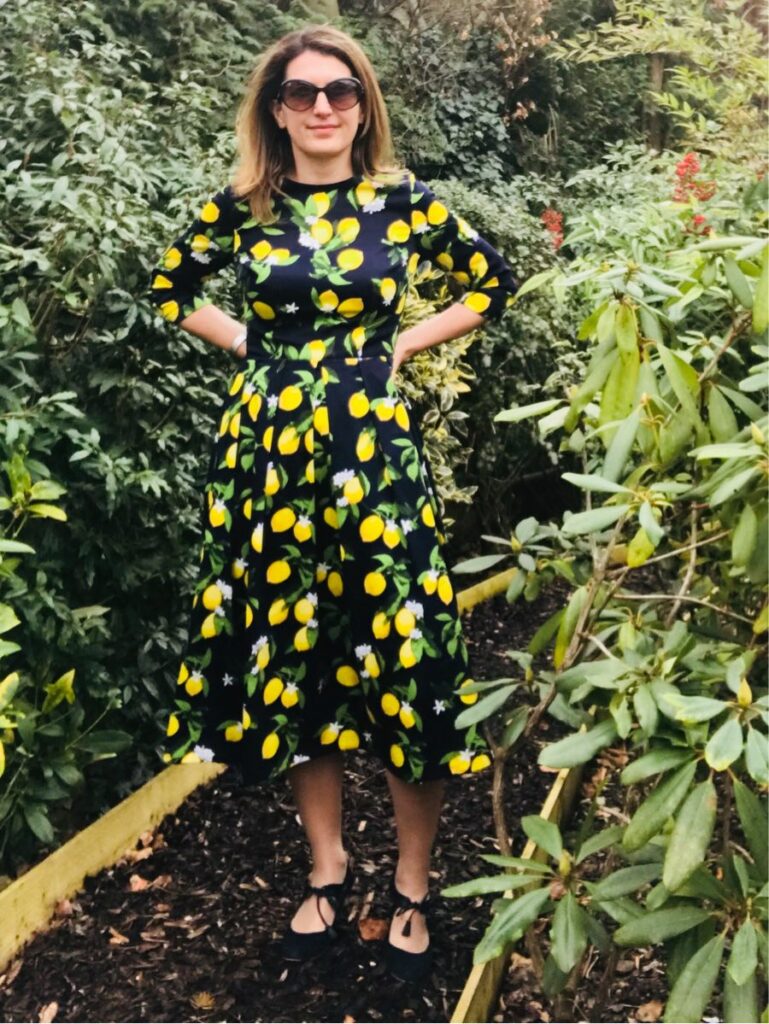
So we’re officialy on version 8 of this pattern, and they all look extremely different. Incredible, isn’t it?
The most perfectly fitted bodice… for me
The joy of this pattern for me is that the bodice fits absolutely PERFECTLY: at the bust, at the shoulder, at the waist, at the back, everywhere is just made for me!!! Having tried many other dress patterns (and you know my love for dresses), I always come back to it when I want a 100% safe fit without the nightmare of FBAs and muslins.
Most pattern-drafting afficinados will recommend you find a perfect bodice pattern and play with it. However, I am actually quite bad at self-drafting, so I was initially reluctant to make modifications to patterns and I preferred to buy new. However, after several fitting nightmare, I realised than minor amounts of self-drafting – such as changing the shape of the neckline or adding a collar – were completelty achievable and a huge time saver versus fighting for the right fit.
For my new dresses, the changes I made to the inital pattern are tiny:
- for the blue dress, I centered the original collar to the middle and made it slightly less deep;

- for the purple and pink dress, I created a heart-shape neckline and removed the collar
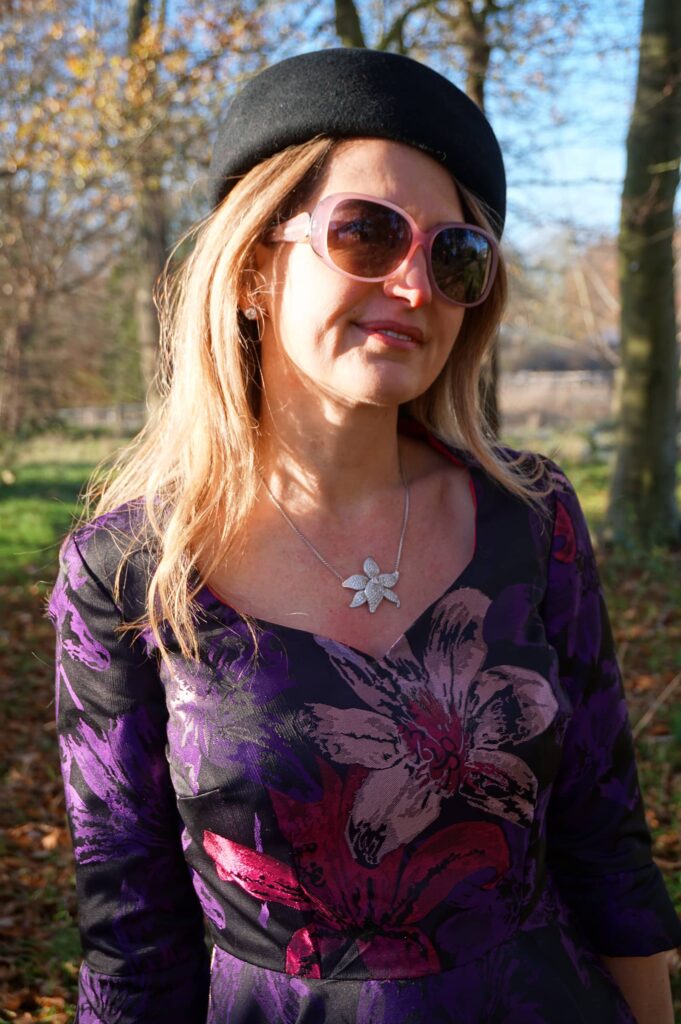
And for both dresses, I used a full circle skirt and 3/4 sleeves with turn-ups, all directly from another of my beloved patterns, M7081 (zilions of versions on the blog, here, here, here, here, here, here and a few more…).
As for all the other versions of M8630, each blog article details the different modifications I have made – just click on each of the pictures above to get to the articles.
Brocade frenzy
Both dresses are sewn in brocade from Croftmill: the purple and pink is still available here;
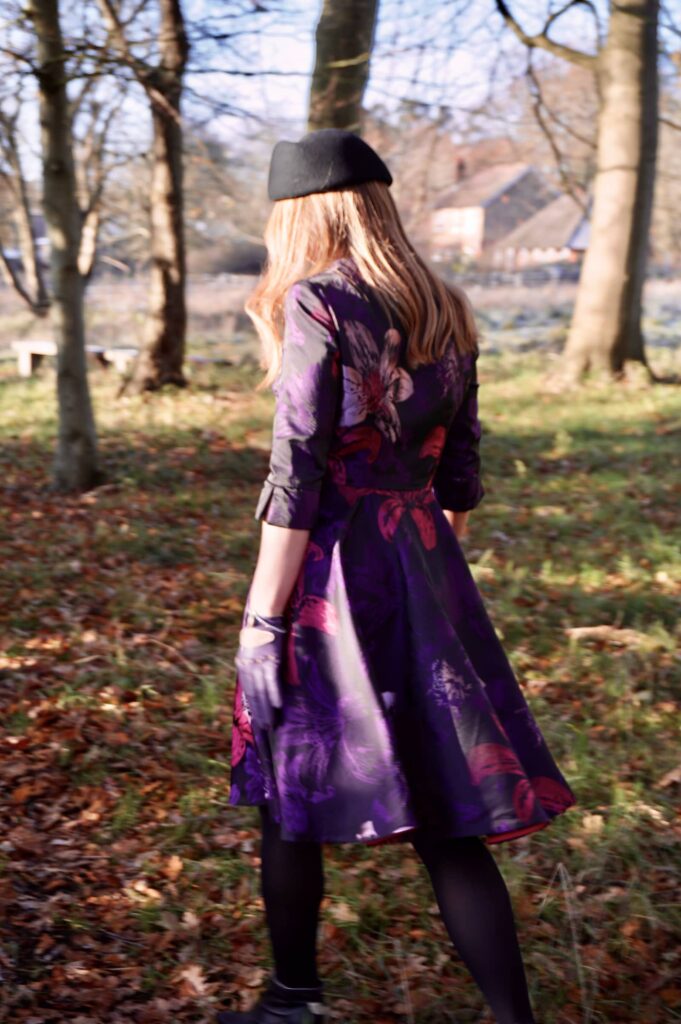
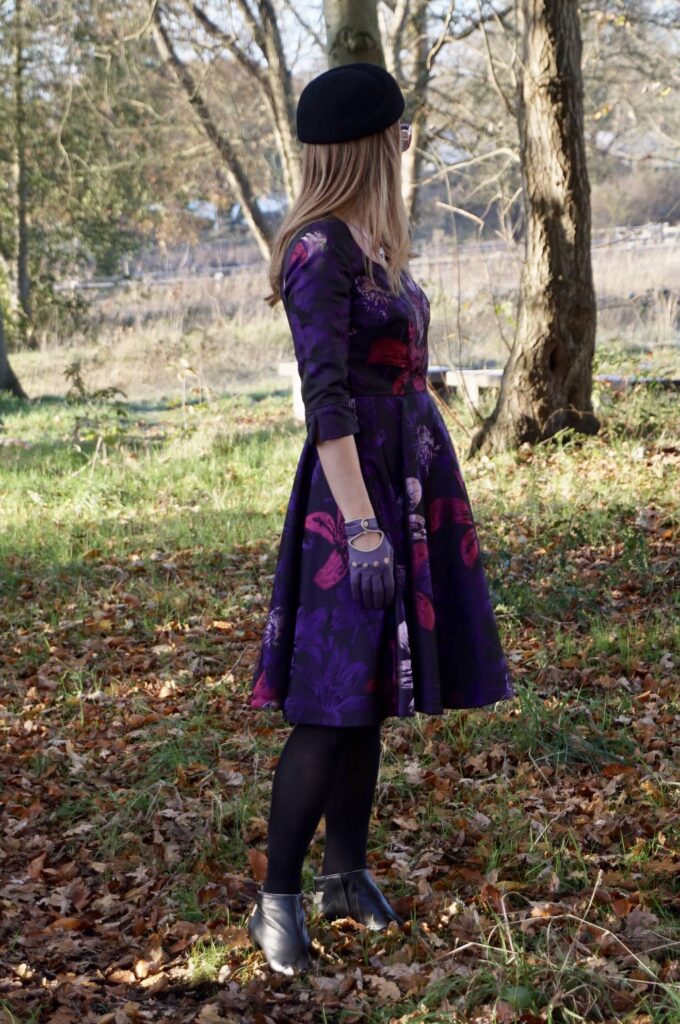
… while the blue and silver is sadly out of stock.
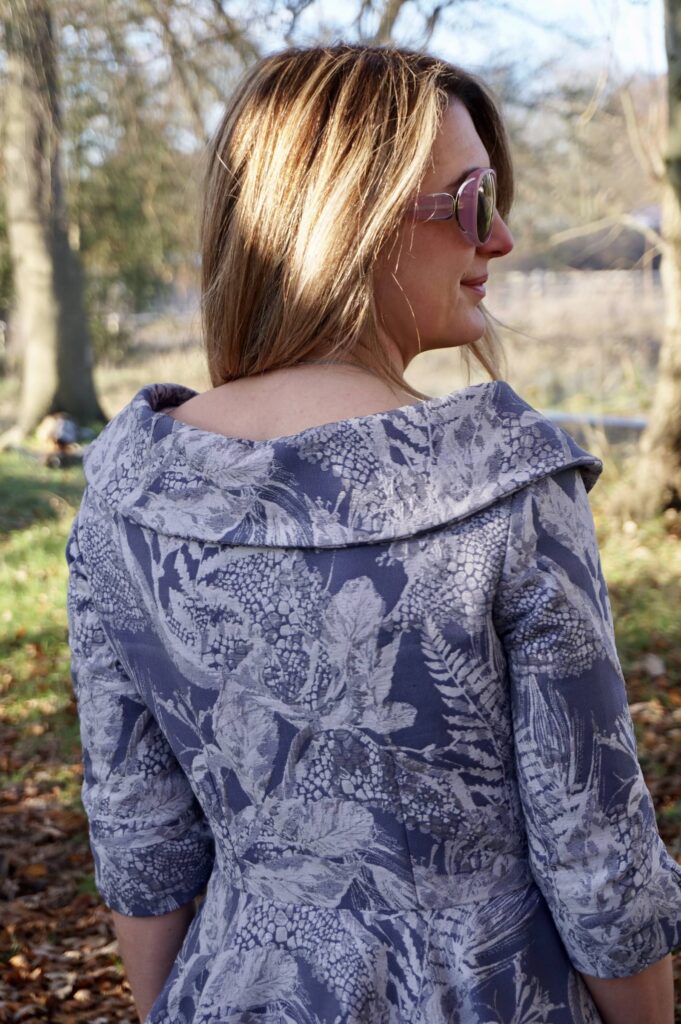
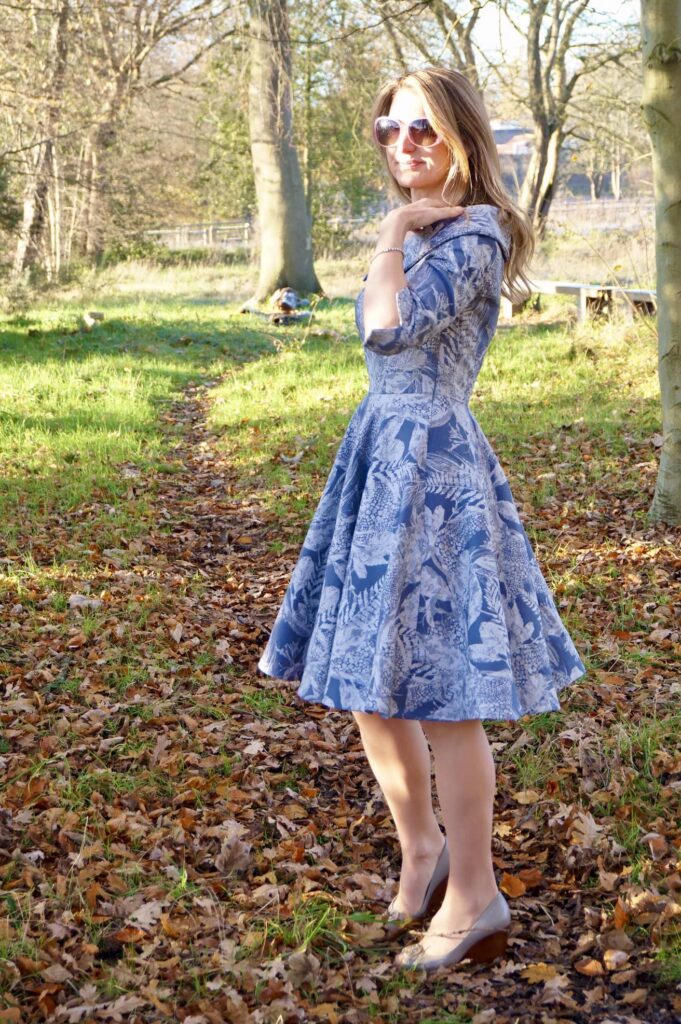
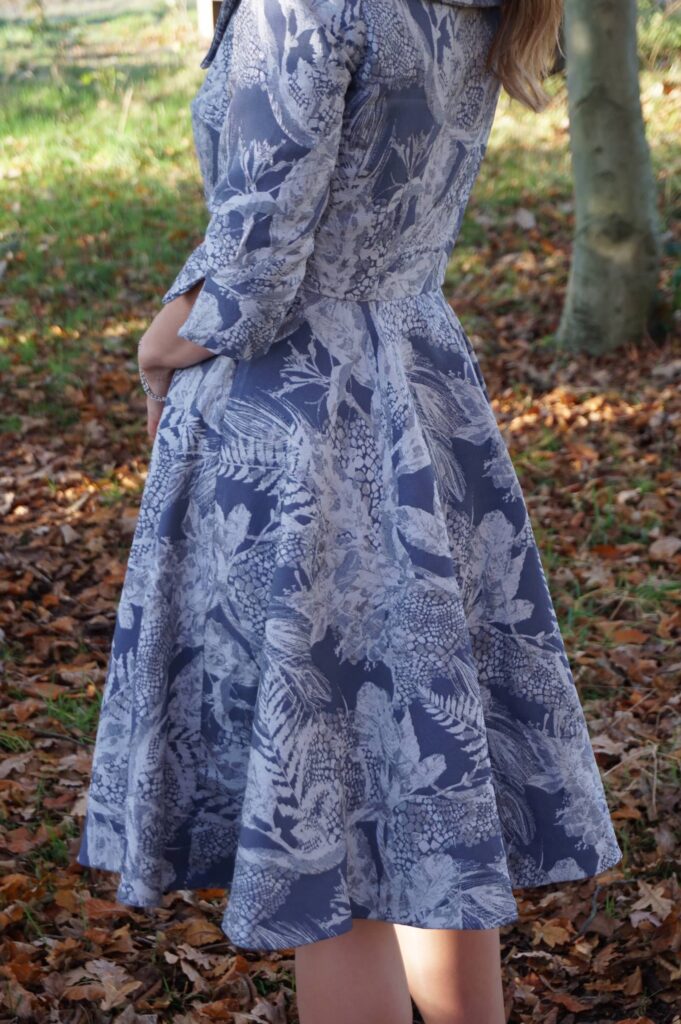
I actually managed to match the lining of my pink Swing coat with my dress for a total Marvellous Mrs Maisel look – I just love it!
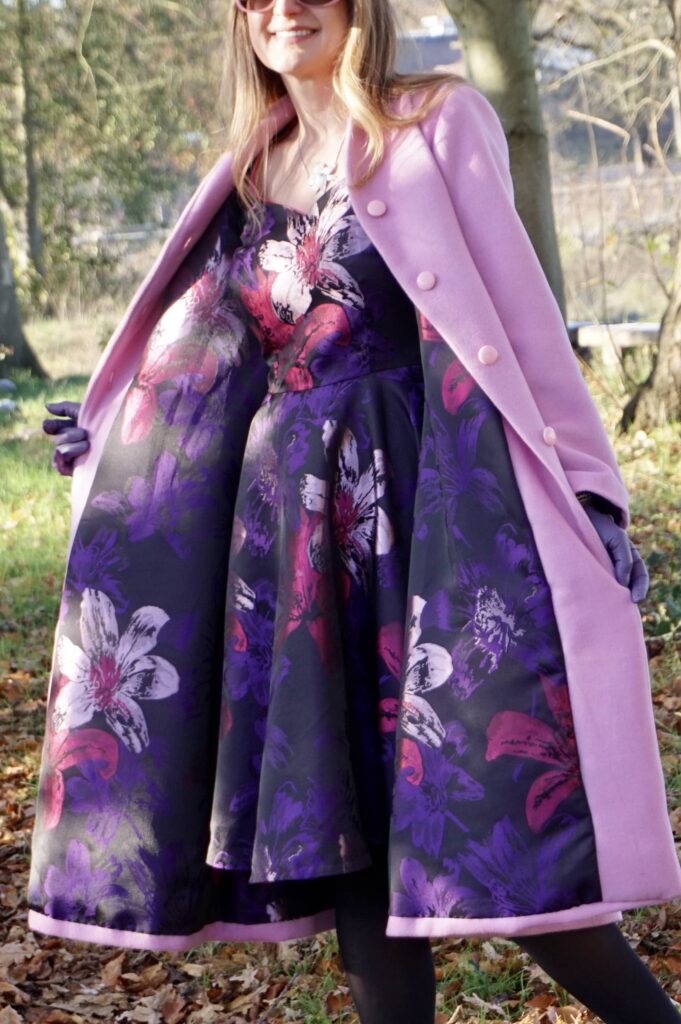
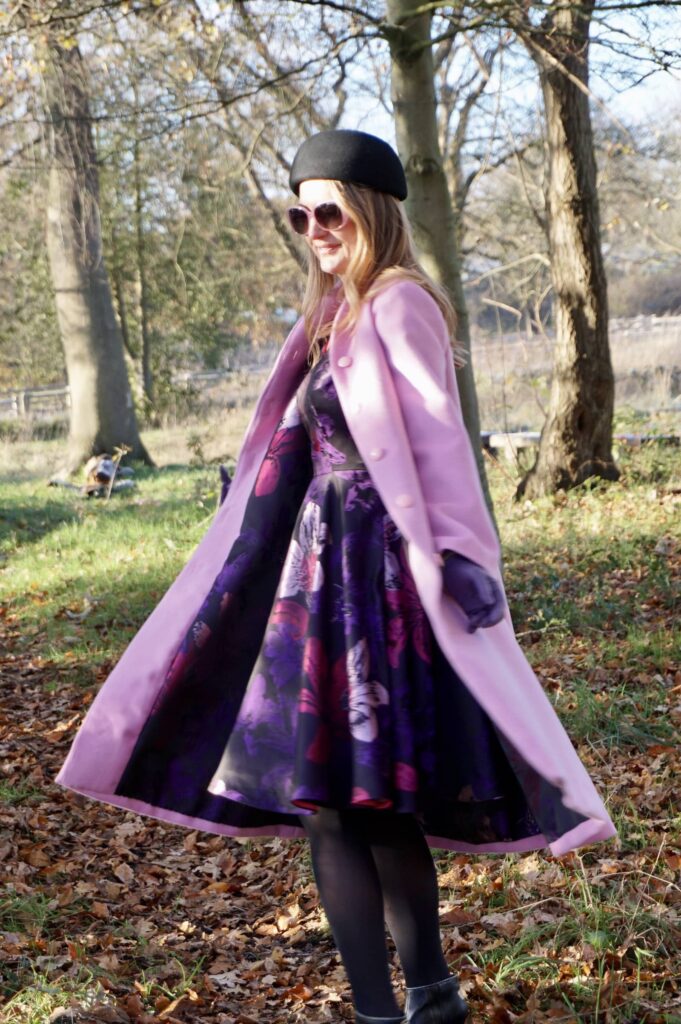
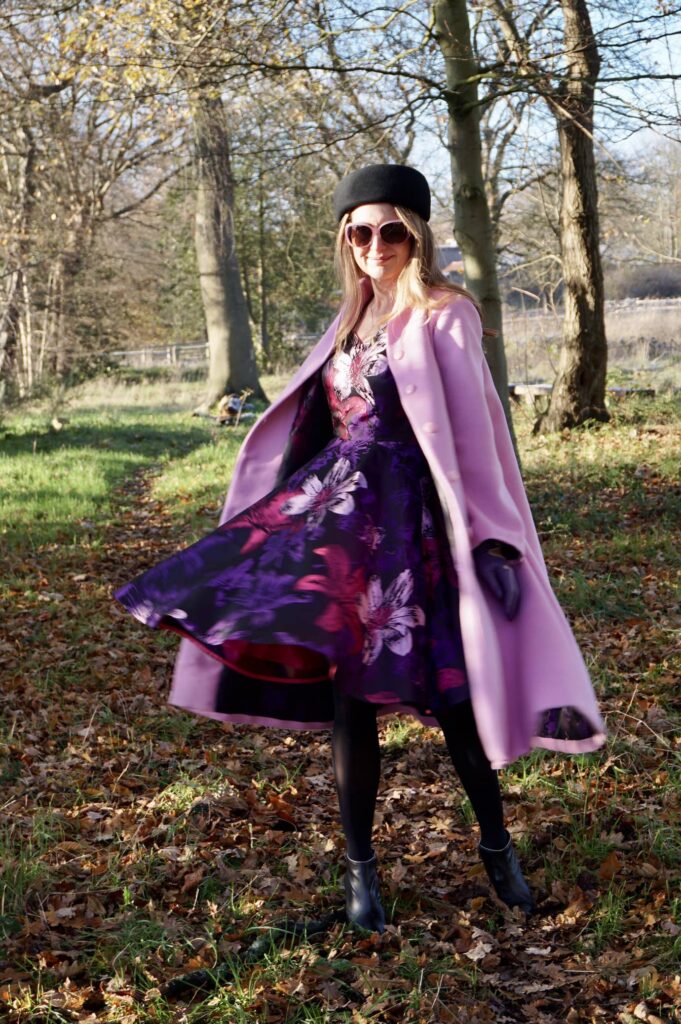
Conclusion
Definitely a lovely set of dresses which I really enjoyed wearing over the past few months. But I admit I am now very much looking foward to sewing for Spring! Lighter colours, lighter fabrics, here we come!
Sewing the Brooklyn Jacket by Charm Patterns
I seem to be sewing things in multiples lately. And I have also been extensively optimising my Charm patterns Patreon membership! So after my three Swing Coats, let me introduce you to my two recently sewn Brooklyn Jackets.

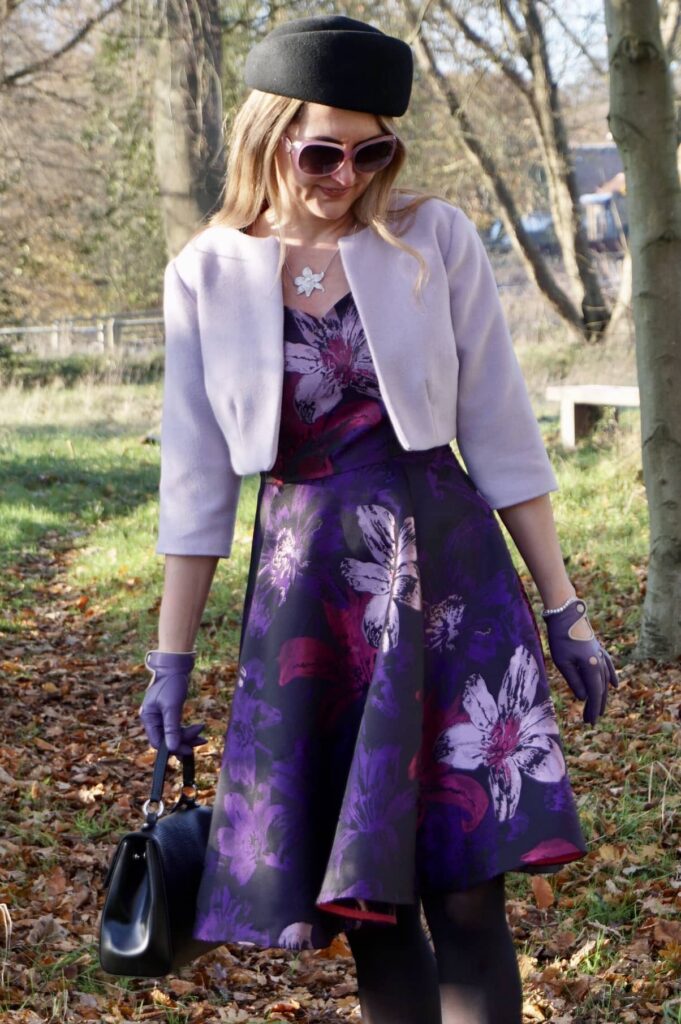
Continuing to build my Mrs Maisel wardrobe
As I mentioned in my previous article, I have recently discovered the Prime Video series “The Marvellous Mrs Maisel”. It has quickly become my major source of sewing inspiration. I even purchased the mesmerizing book written by the show’s costume designer Donna Zakowska, which I warmly recommend to anyone into 1950’s fashion.
I adore dresses and so does Mrs Maisel. But like me she lives in a temperate climate (New York City) and needs to wear layers over her dresses in the winter – namely jackets, cute, cropped and obviously perfectly matched to her dresses. And so I needed jackets to!!
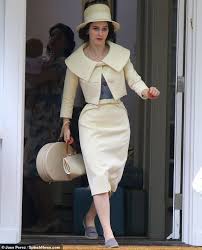





The perfect cropped jacket pattern
Thankfully Gertie of Charm Patterns seems to be as obsessed with Mrs Maisel’s wardrobe as I am. And her recently released Brooklyn Jacket pattern was exactly what I was looking for.
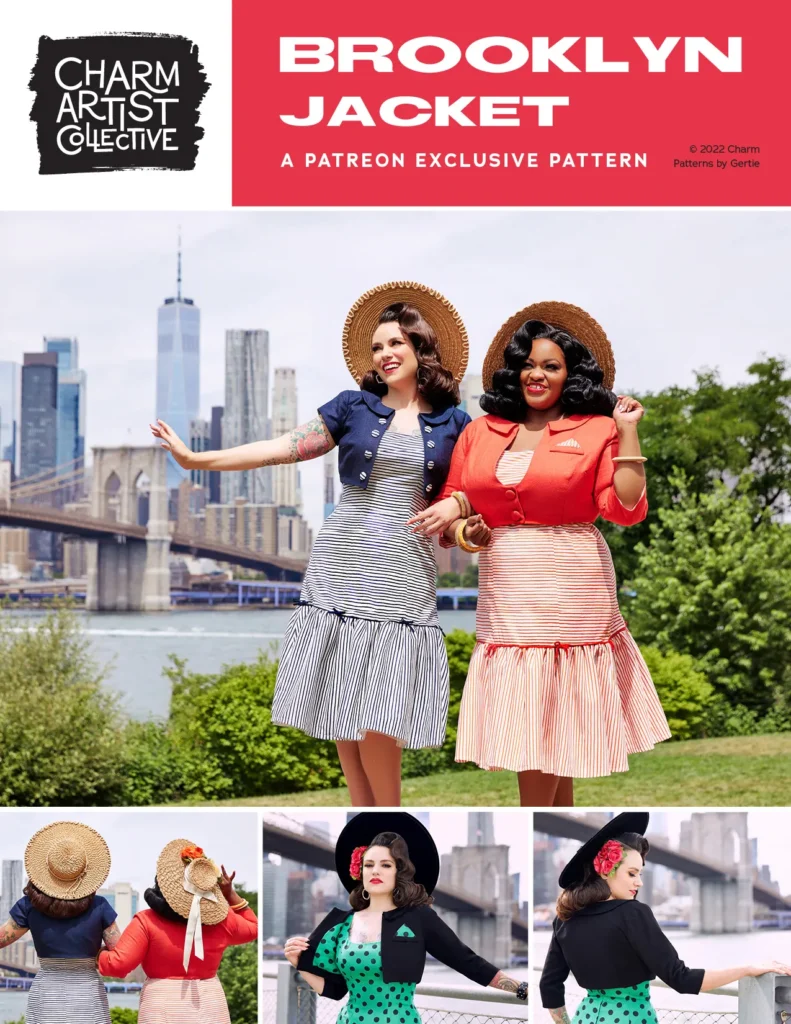
The Brooklyn jacket is a fully lined and fitted jacket offered in two lengths (waist or cropped) with two sleeve options (cap and three-quarter). It has a collar which can be easily omitted.

For my winter purpose, I chose the cropped version, with sleeves obviously, and without the collar. As such it perfectly substitutes for a cardigan – but looks way more elegant! (and takes far less times to make).
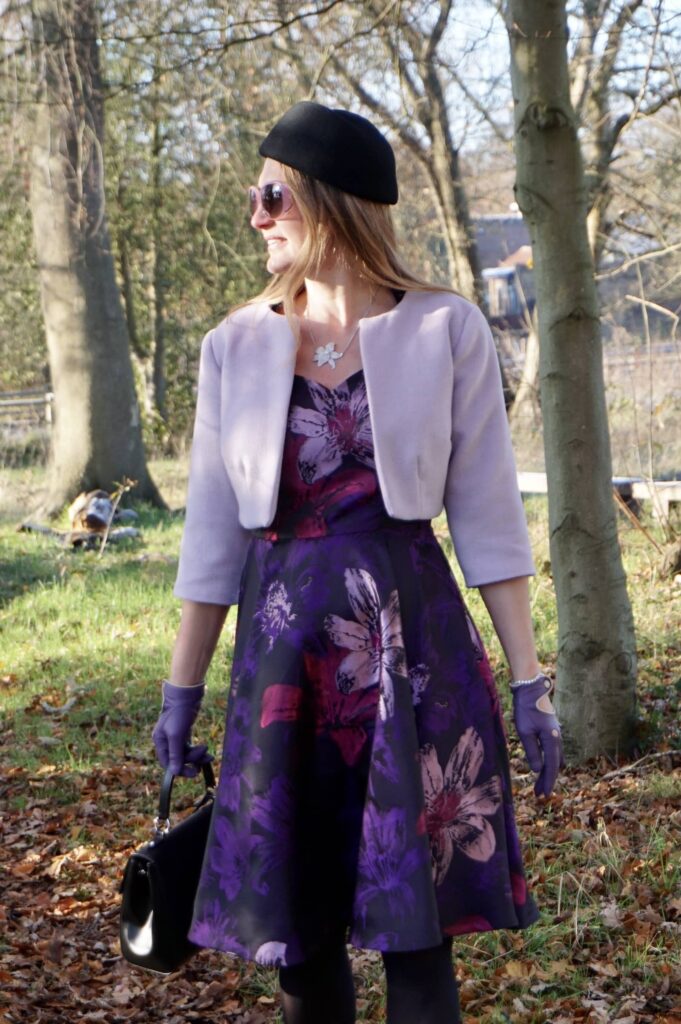
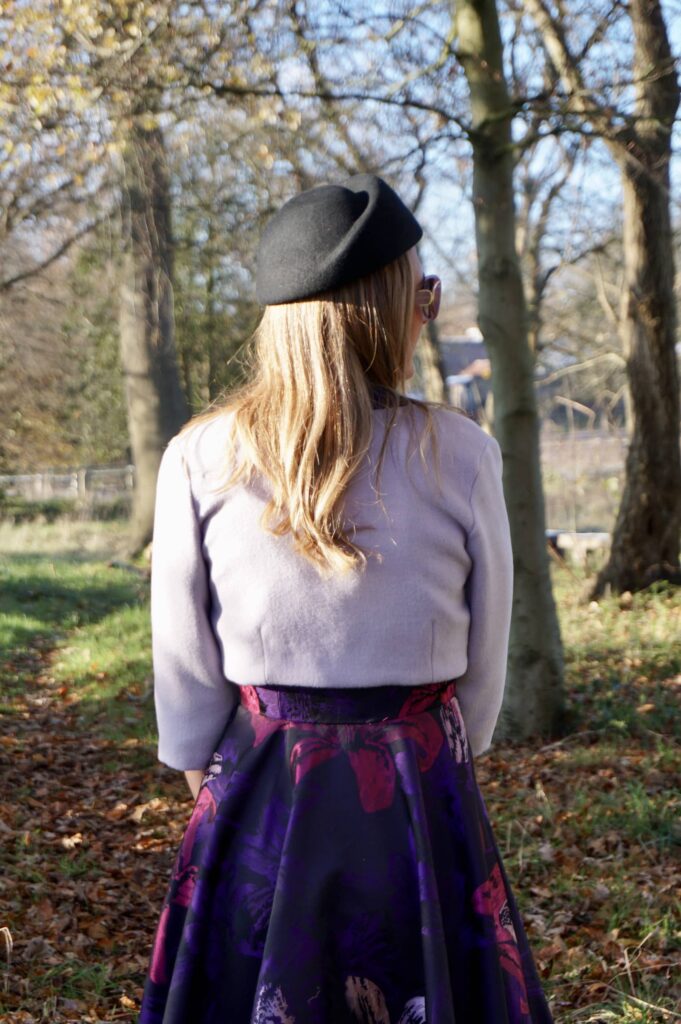
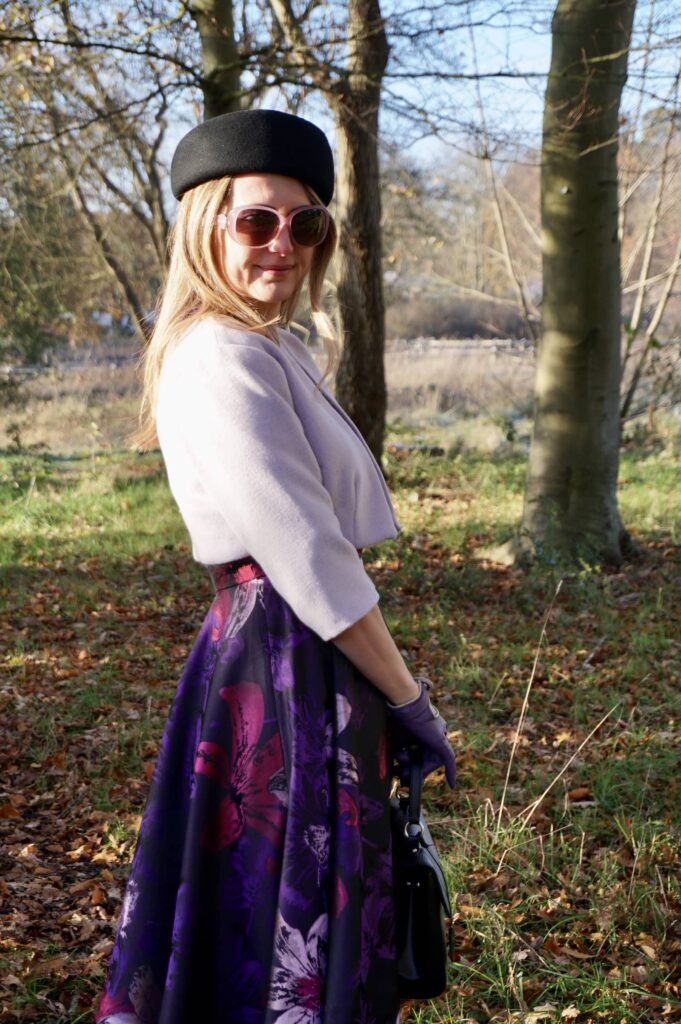
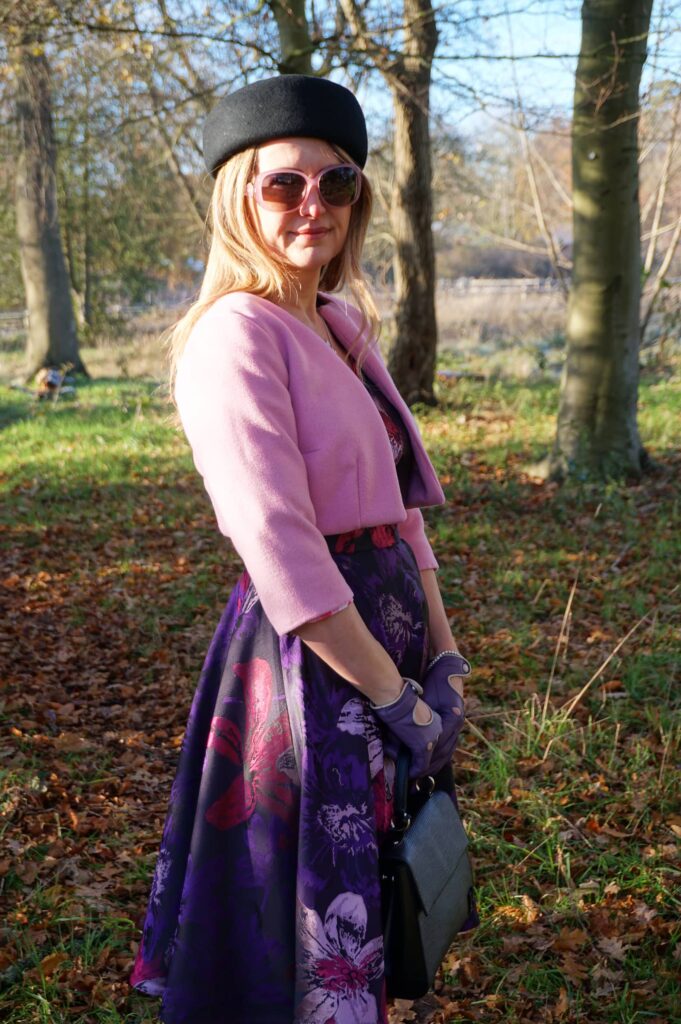

Brooklyn Jacket pattern review
As with most of Gertie’s patterns, I am an absolute fan. To be honest I can only see positive points in this pattern.
- It is an extremely quick make. There are very few pattern pieces (even including the lining) and absolutely no technical difficulty whatsoever.
- It consumes a minimal amount of fabric. I used less than 1m of main fabric for my size 4; and even less than that for the lining. If you cut cleverly your pieces (which I sadly did not do), I reckon you could fit a Swing Coat and a Brooklyn Jacket in 3m of fabric (for the smaller sizes).
- The instruction are crystal clear. Gertie offers both a written instruction booklet and a video.
- The style and the fit are absolutely spot-on. The fact that Charm Patterns offer bust cup options for all their patterns helps a lot getting the perfect fit in my view.
- I love the fact that this jacket is entirely lined. It makes for a much neater finish and a much more comfortable wear.


Fabric used
As for my Swing Coats, I used the wonderful Pop wools from Les Coupons de Saint Pierre and it makes my jackets warm and comfortable. I lined the both jackets with fabric leftovers from other project: lilac dupion silk for the lilac jacket; and a cotton lawn for my pink jacket. Can you remember the initial projects?
Conclusion
Here is another project I am absolutely thrilled with. Now the struggle will be to find the motivation to knit cardigans again…
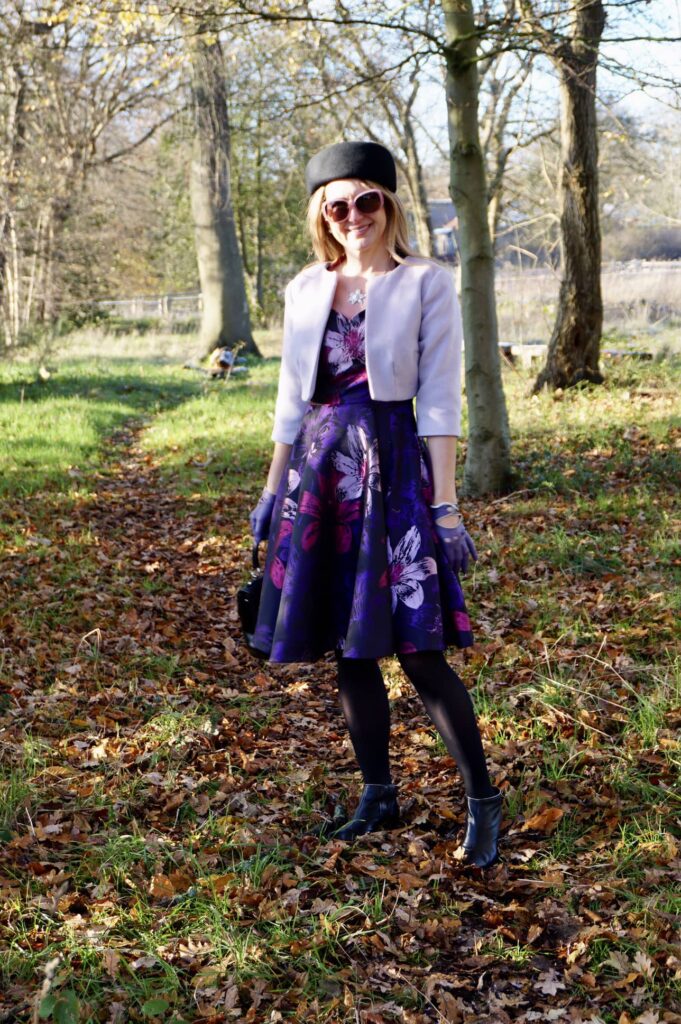
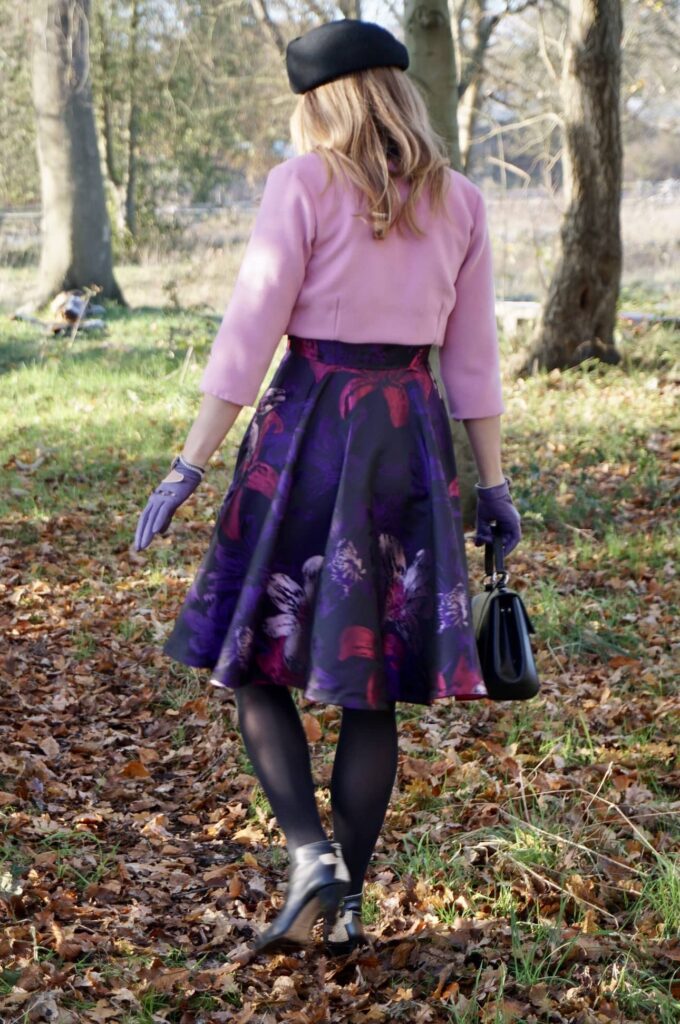
Sewing the Swing Coat by Charm Patterns
The winter has finally arrived in London, with a clear sky and sub zero temperatures… And thankfully I am fully prepared! Let me introduce you to not just one… not just two… by three newly-sewn Swing Coats by Charm Patterns.

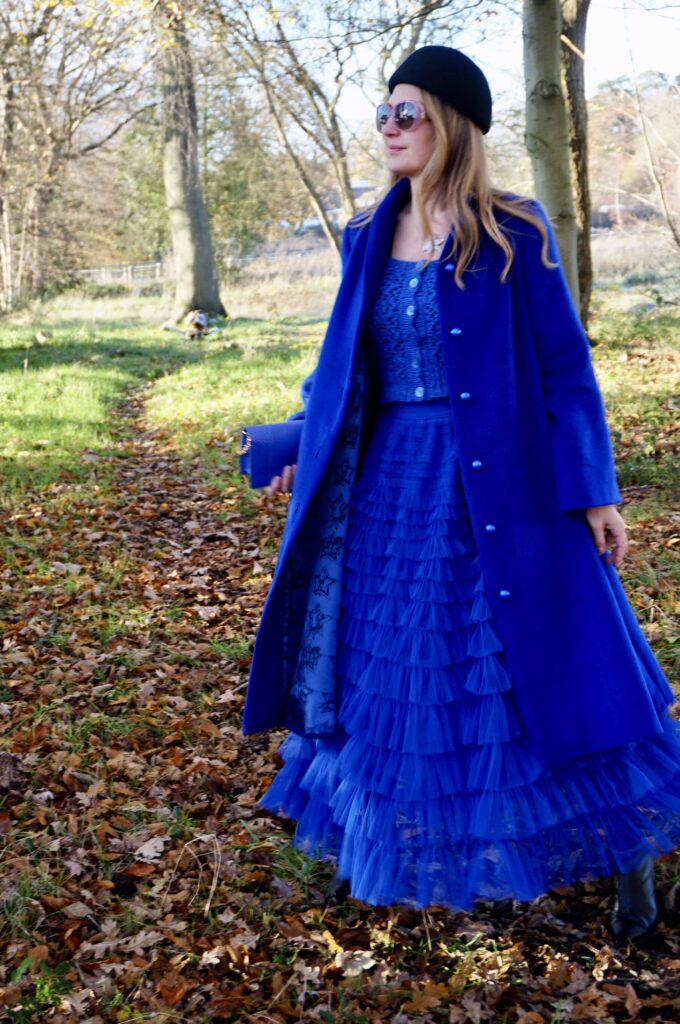
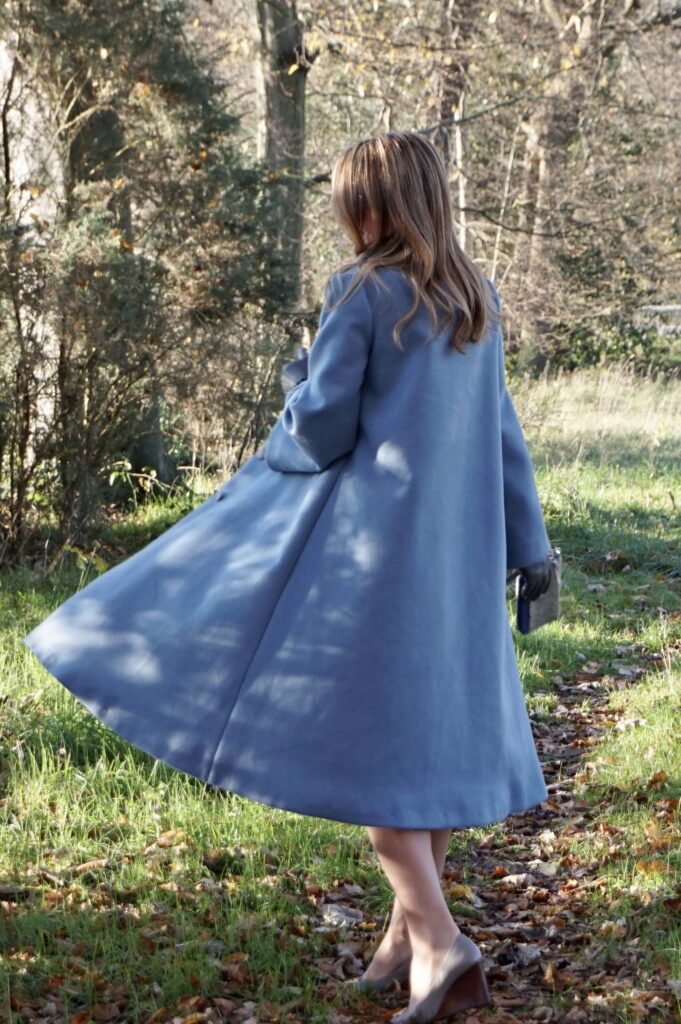
Dreaming of a Marvellous Mrs Maisel wardrobe…
I recently discovered the Prime Video series « The Wonderful Mrs Maisel ». And there is now nothing more than I want to do than replicate Mr’s Maisel’s entire wardrobe! The series is set in the last 1950’s and Midge Maisel has just the most wonderful collection of fit-and-flat dresses … and all the swing coats to go with them of course!

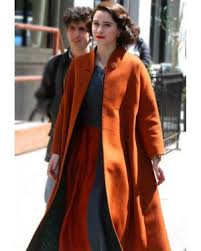
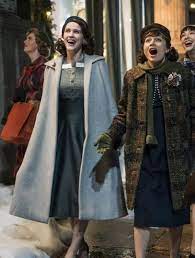

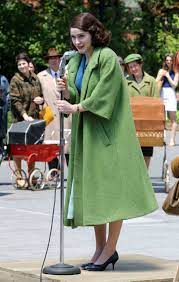

Before discovering Mrs Maisel, It though only princess coats were appropriate for fit-and-flare dresses. I had the perfect pattern, the Princess Coat by Charm Patterns,. But I only ever made it in its peplum version because the full-length one just requires so much fabric! (about 6m…)
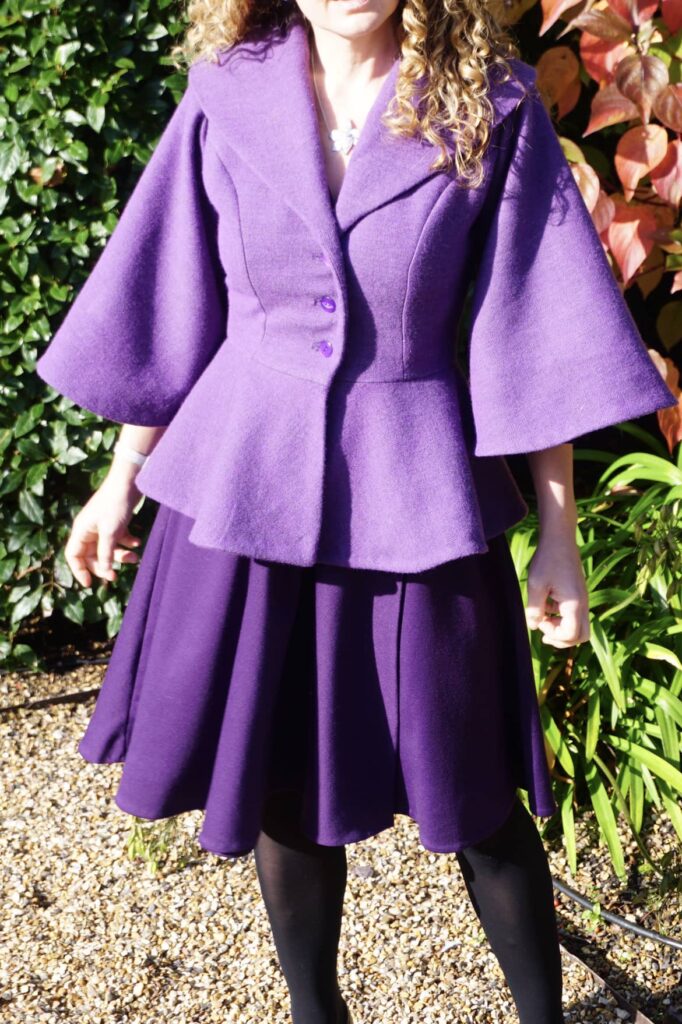
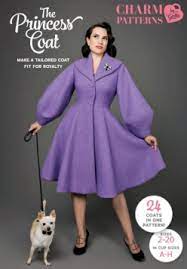
But thankfully Mrs Maisel made me discover a new coat shape, far less fabric-hungry and far easier to wear. And wonderful Gertie of Charms Patterns had the perfect pattern.
Becoming a Patron of Gertie: my best ever idea
Patreon is a membership platform where for a monthly fee, you get access to content from highly skilled creators. I had been eying Gertie’s Charm Patterns Patreon for a while, as I adore her style and her patterns are of extremely high quality- and all with bust cup options!
I finally decided to bite the bullet (USD8/month, why did it take me so long?) and got access to the most wonderful treasure trove of patterns. Here are a few of the patterns on my to-sew list.
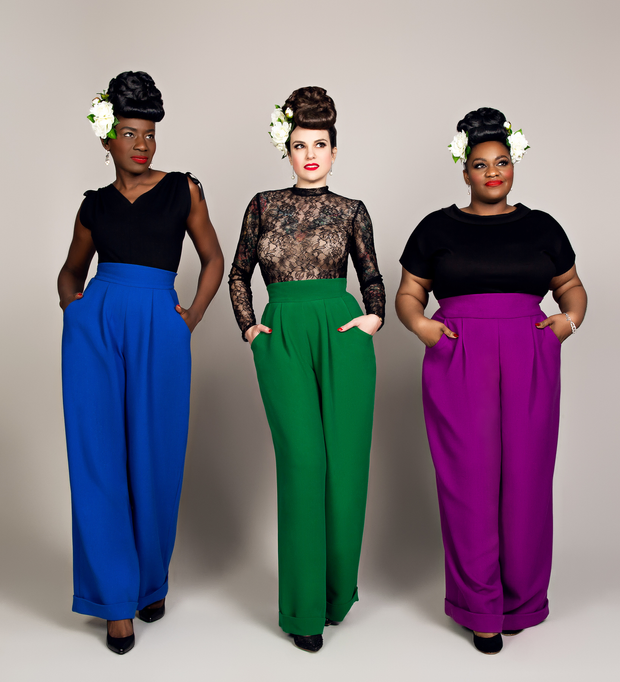
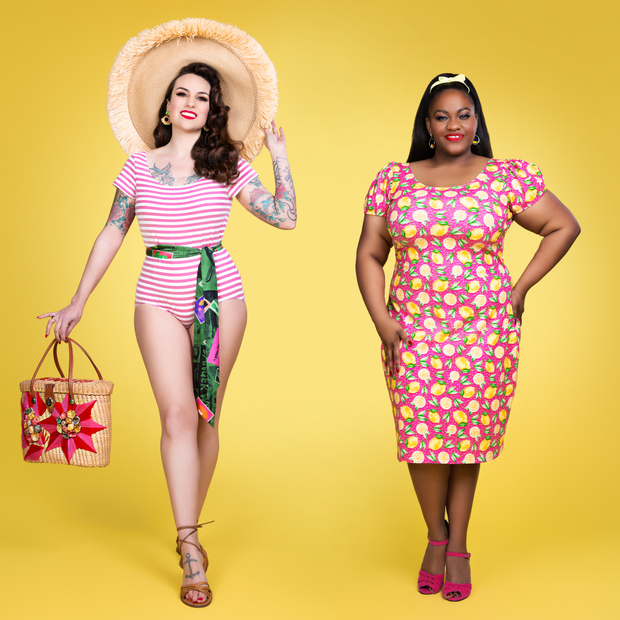
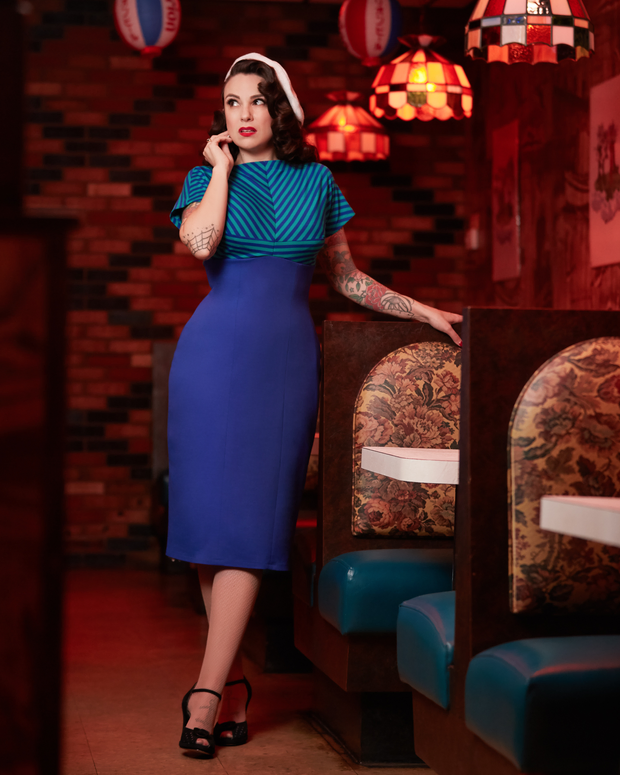
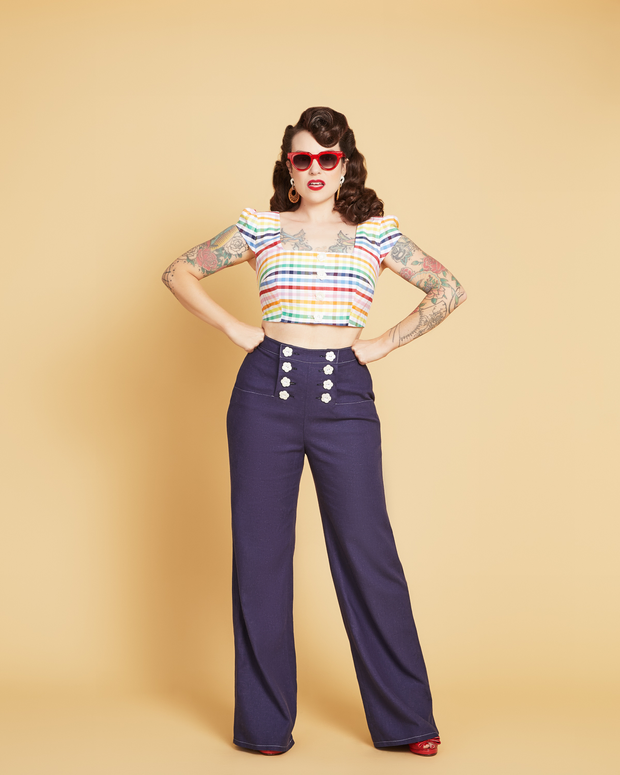
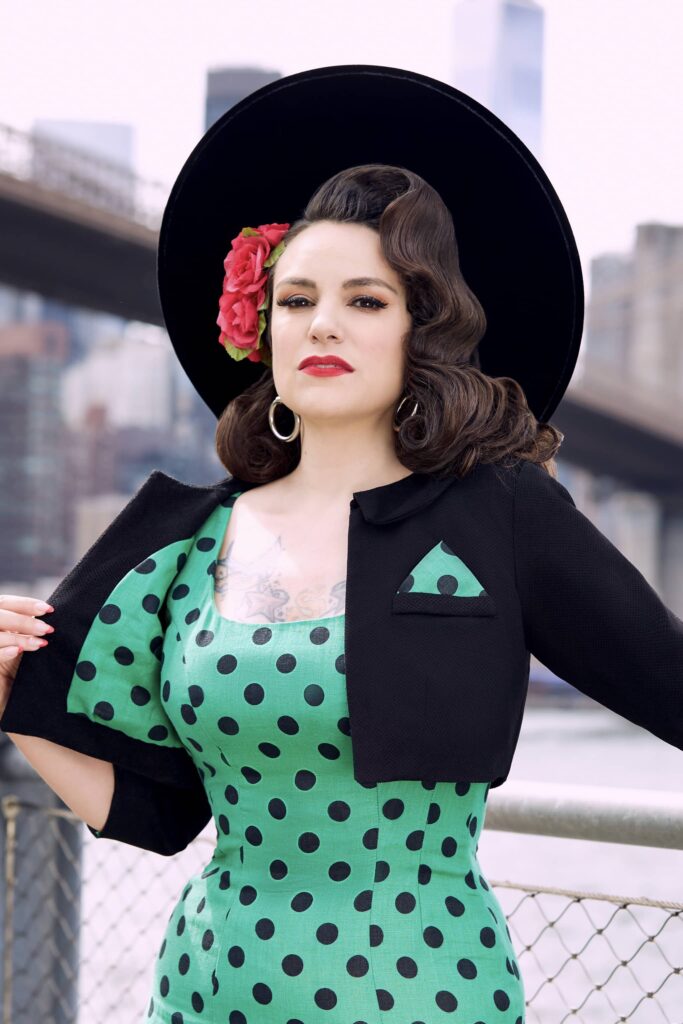

Sewing the Swing Coat Pattern… three times!
Back to my coats! With winter coming and Les Coupons Saint Pierre offering the most wonderful wool fabric in all the colours of the rainbow (back to this later), my first choice of pattern was obviously the Swing Coat. Here is the marvellous picture from Gertie; as well as the pattern line drawings…

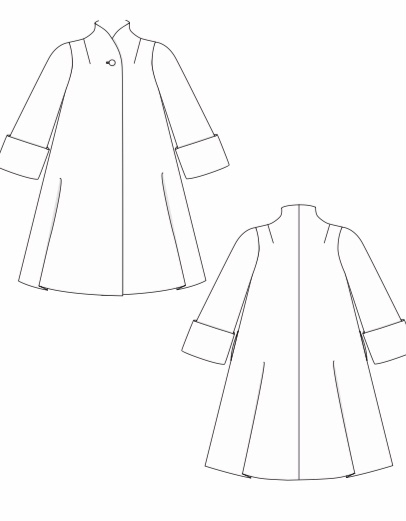
… and here are my own Swing Coats.
First, a duck egg blue coat. This is not a colour I wear a lot but this was meant to be a toile to check sizing, and it turned out very wearable.
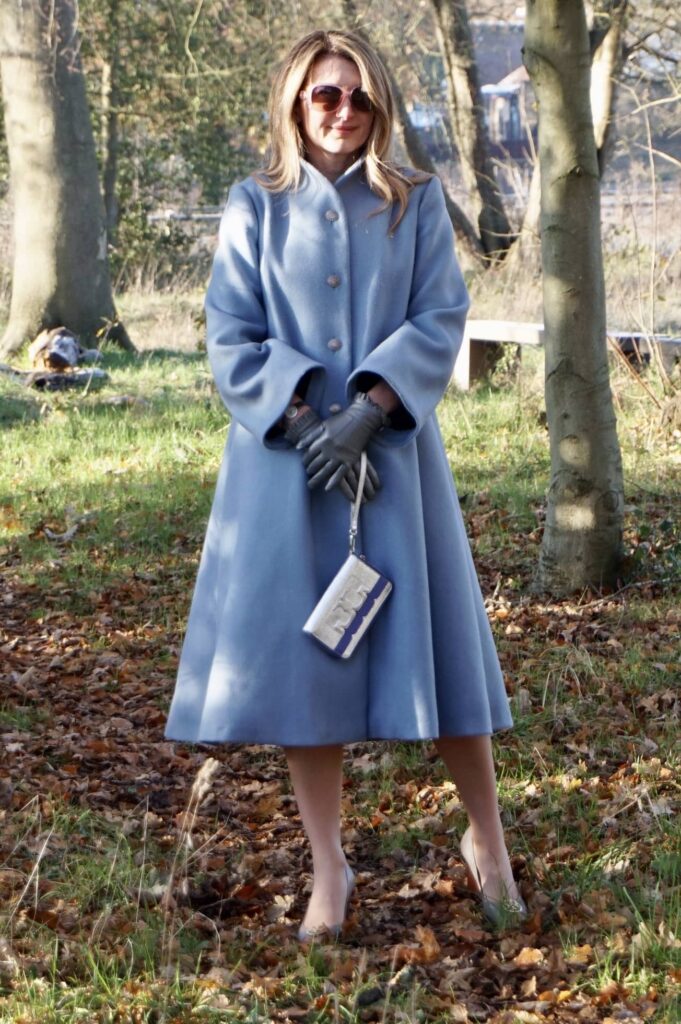
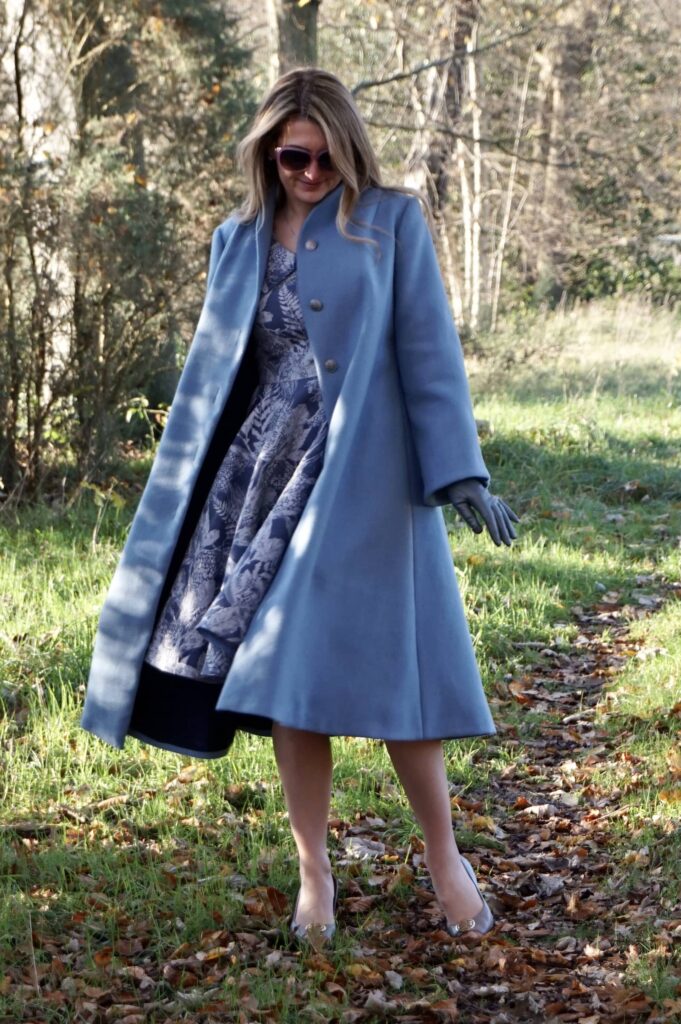
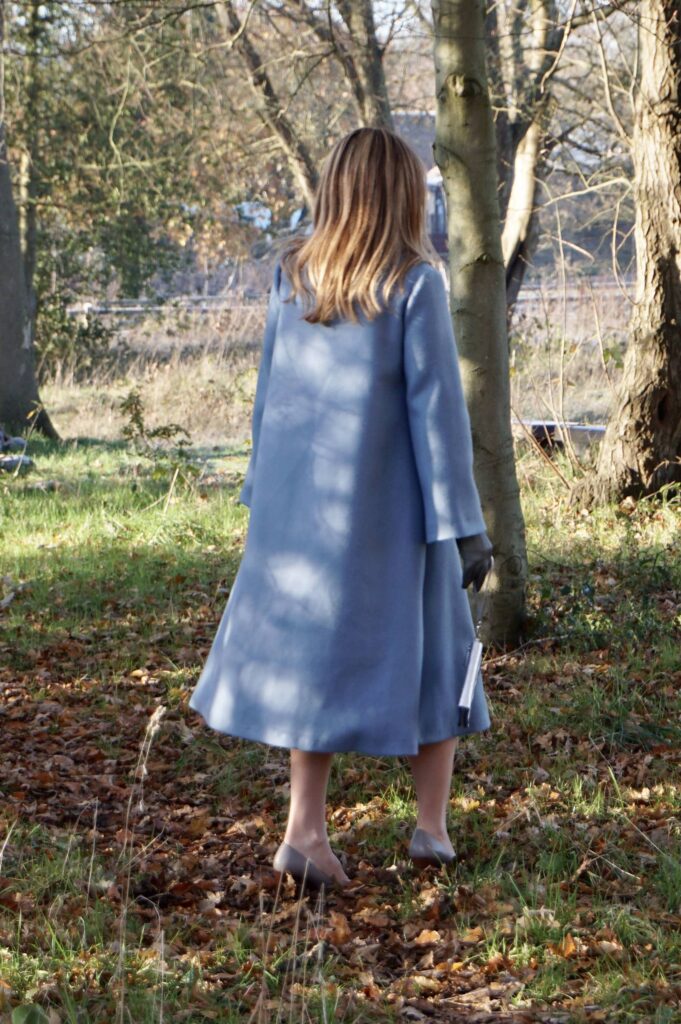
Second, a bubblegum pink Swing coat, with a lining matching my dress. You definitely cannot miss me at mass (the priest commented last week, very funny) but I just love it!
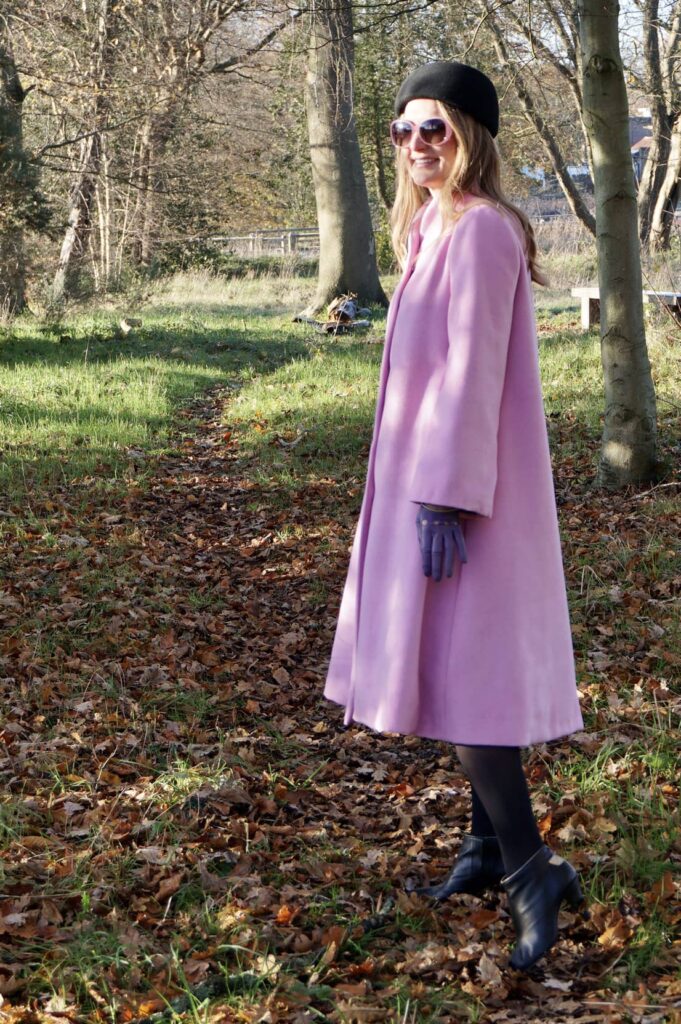
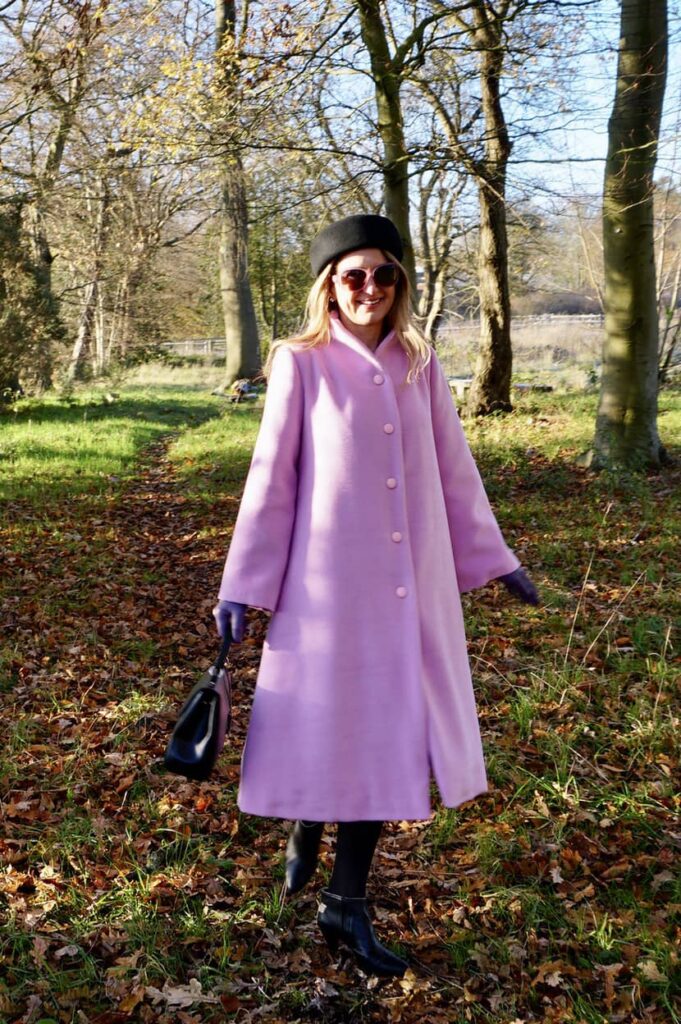
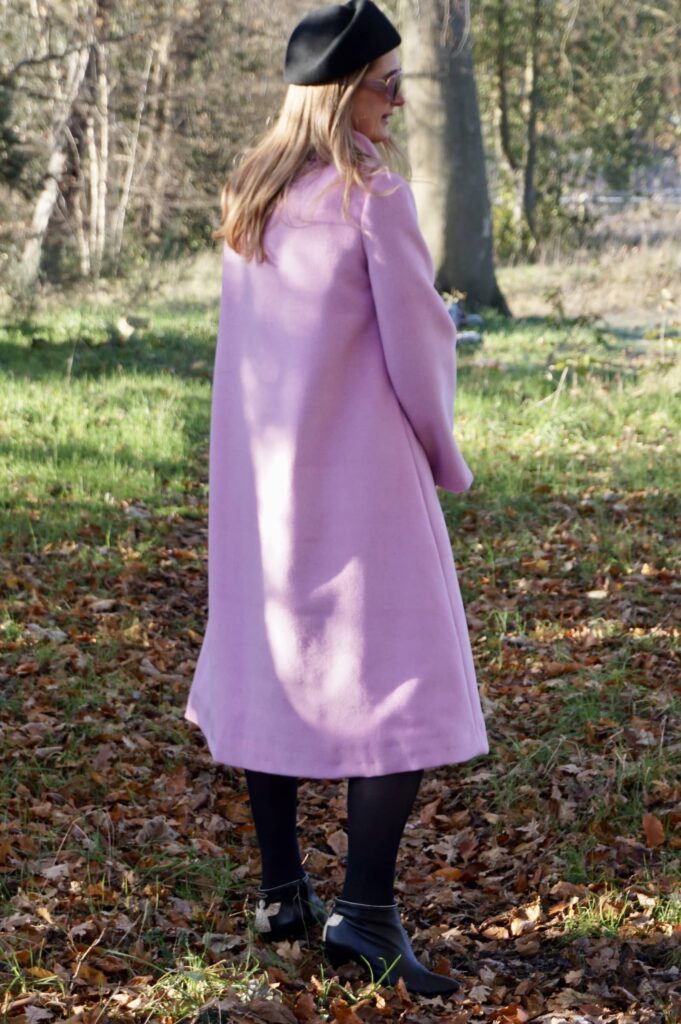
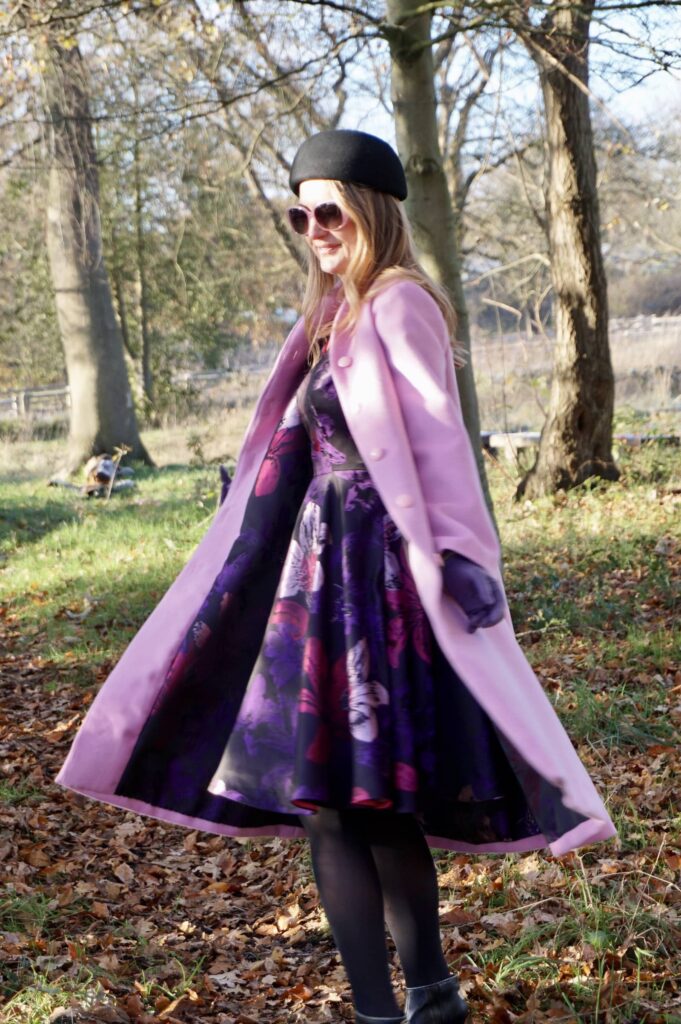
And third a royal blue Swing Coat, with its own funky lining. Another colour I adore and which I definitely should sew more often.
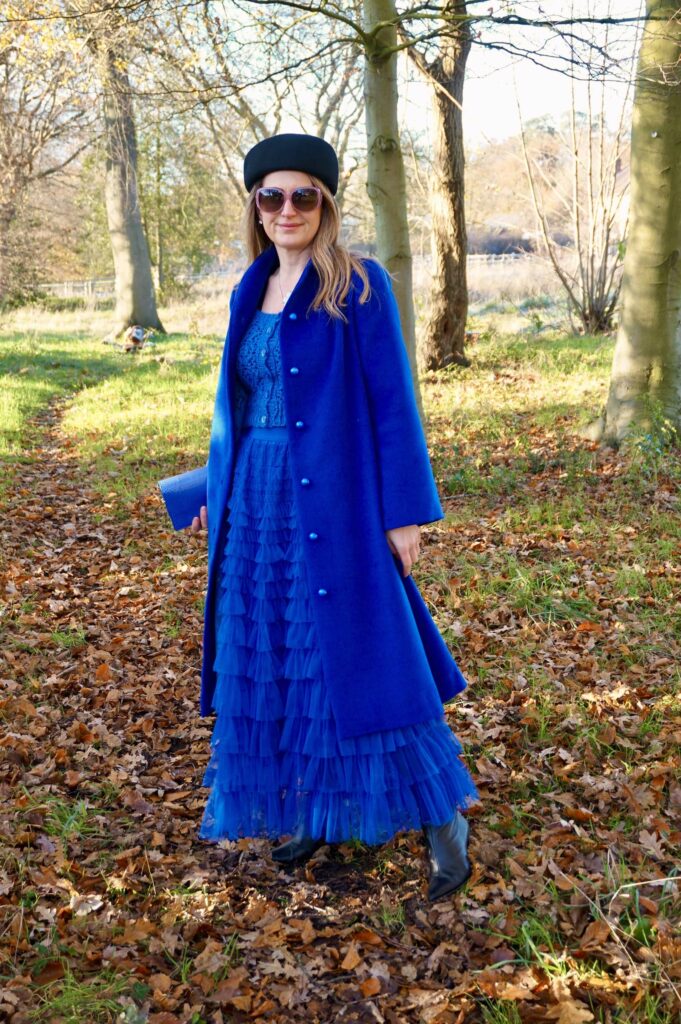
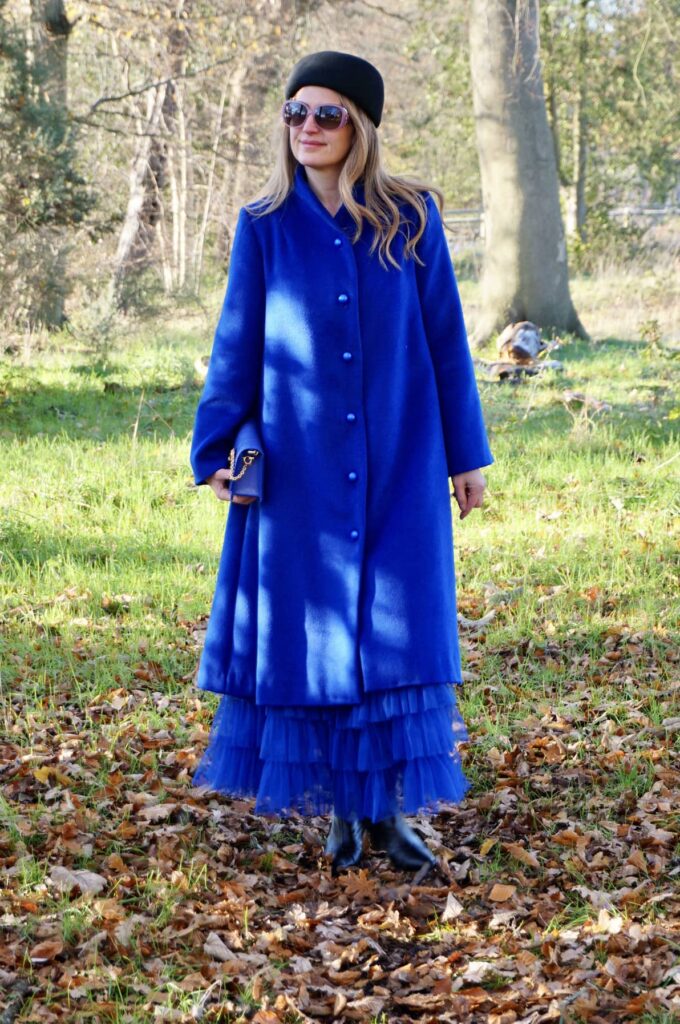
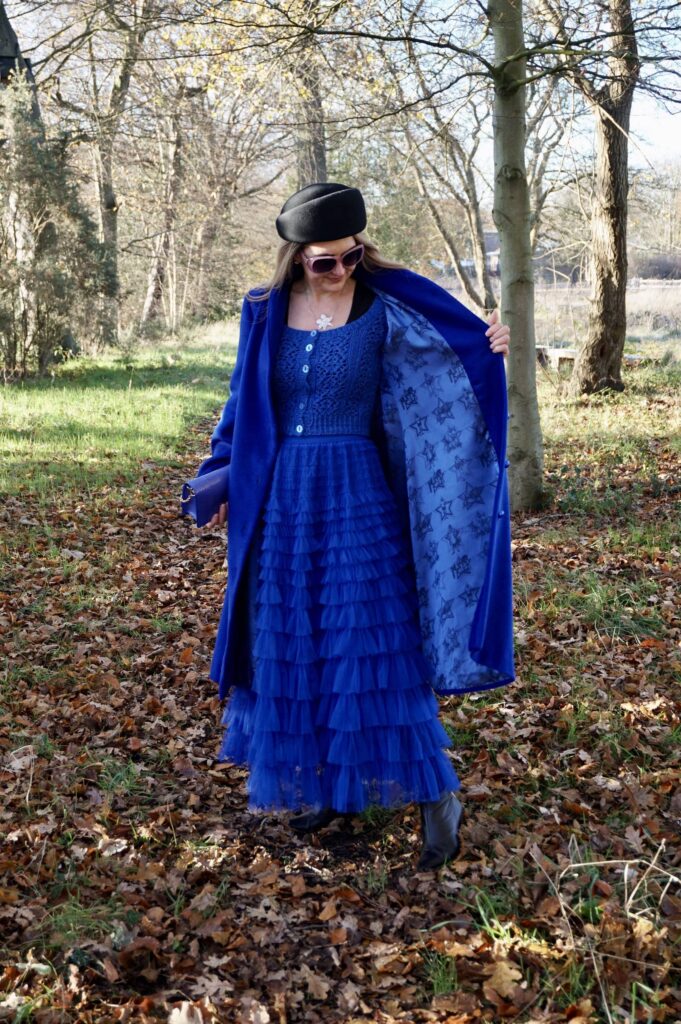
Cham Patterns Swing Coat review
Charm Pattern’s Swing Coat is a 1950’s coat with fitted shoulders avoiding any sense of bagginess; an A-line shape which accommodates all skirt shapes (full circle included!); and mid-calf length which works for knee, midi and floor-lenght skirts alike.
I absolutely adore this pattern (as you can probably tell from my three versions sewn over as many weeks) for several reasons:
- The shape is absolutely perfect for my style, which revolves a lot around fit-and-flare dresses of various skirt lengths.
- This is an extremely easy make, with a limited number of pattern pieces and no huge technical difficulties – as long as your sewing machine decides to collaborate when it comes to buttonholes!
- The pattern is of amazing quality. It is drafted to perfection to fit all body shapes thanks to inclusive sizing and bust cup options. It as crystal clear written instructions and even a full video. Lastly but most importantly for a winter coat, it is fully lined.
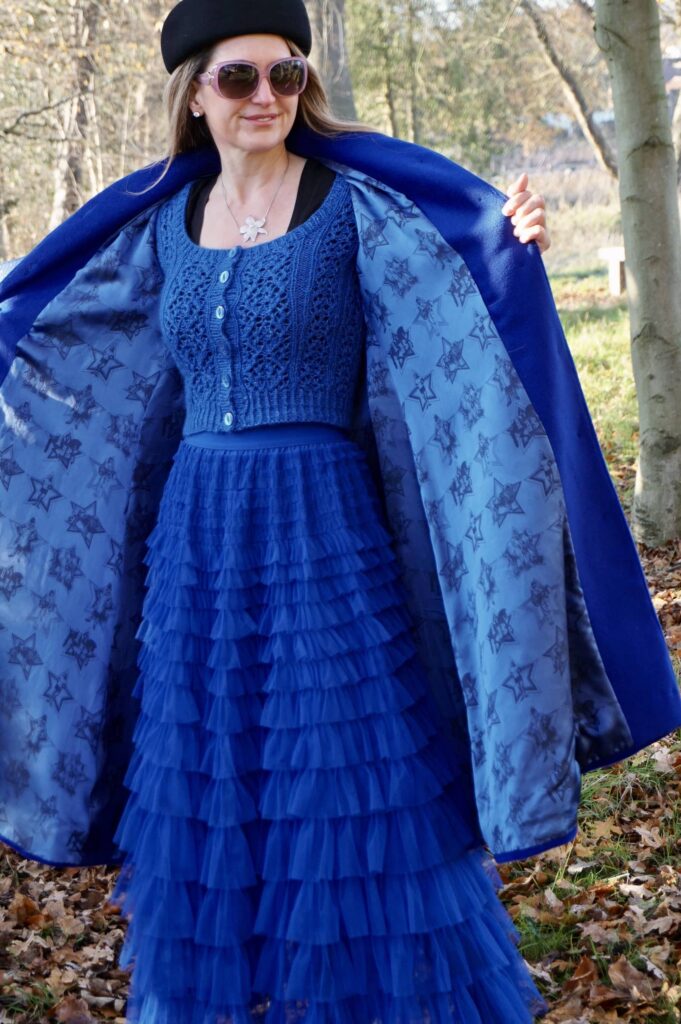
The only two slightly negative points for me are:
- the recommended sizing, which runs a bit large;
- and the way to attach the lining at the bottom – by hand, which takes forever and can result in the lining pulling to coat up )many trials and error here).
The two changes I made to the pattern (for all three coats) were the following:
- removing the sleeve cuffs, which I think give the coat a very heavy look;
- adding more buttons , so that I can fully button down my coats in the winter – my buttonless purple coat taught me a good lesson on this front!
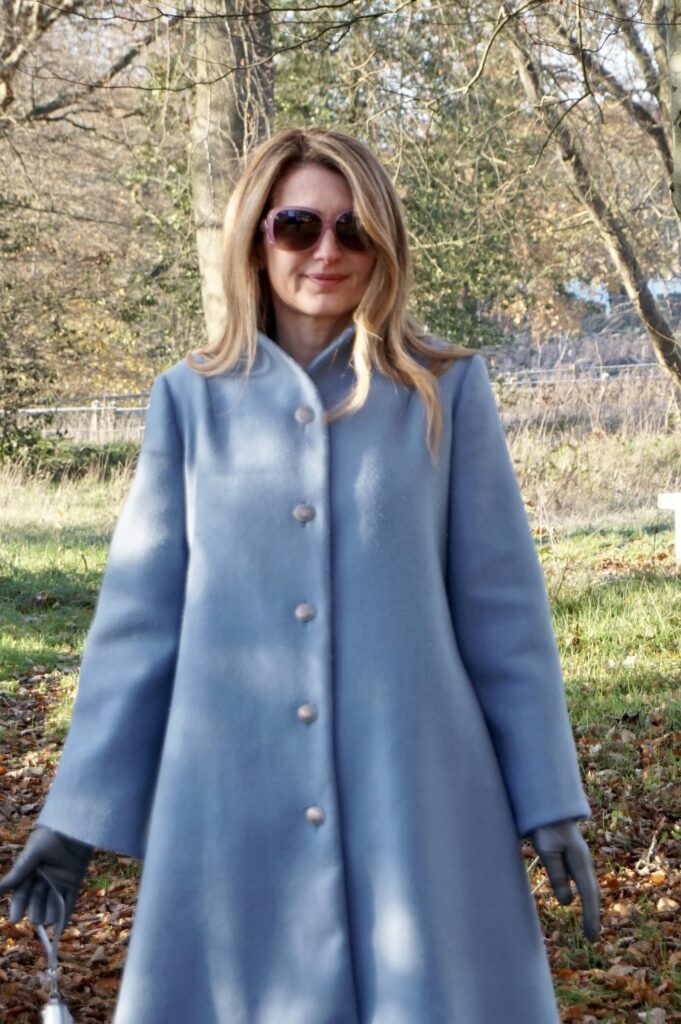
Stumbling upon the most gorgeous fabric
Finding reasonably-priced wool in the UK is a struggle. So while looking for coat fabric I came back to my try-and-tested French online shops.
And I was the luckiest person on hearth! Les Coupons Saint Pierre had just received the most amazing collection of “Pop Wools” (as they called them), in all the colours of the rainbow. Not only were they a bargain (€30 for 3m) but they are the most incredible quality: 70% wool, with a soft hand, super warm and they do not pill (pilling is my hate pet).
Sadly they are only very few colours left in stock at the time of writing; but I managed to order A LOT… and make more than coats.
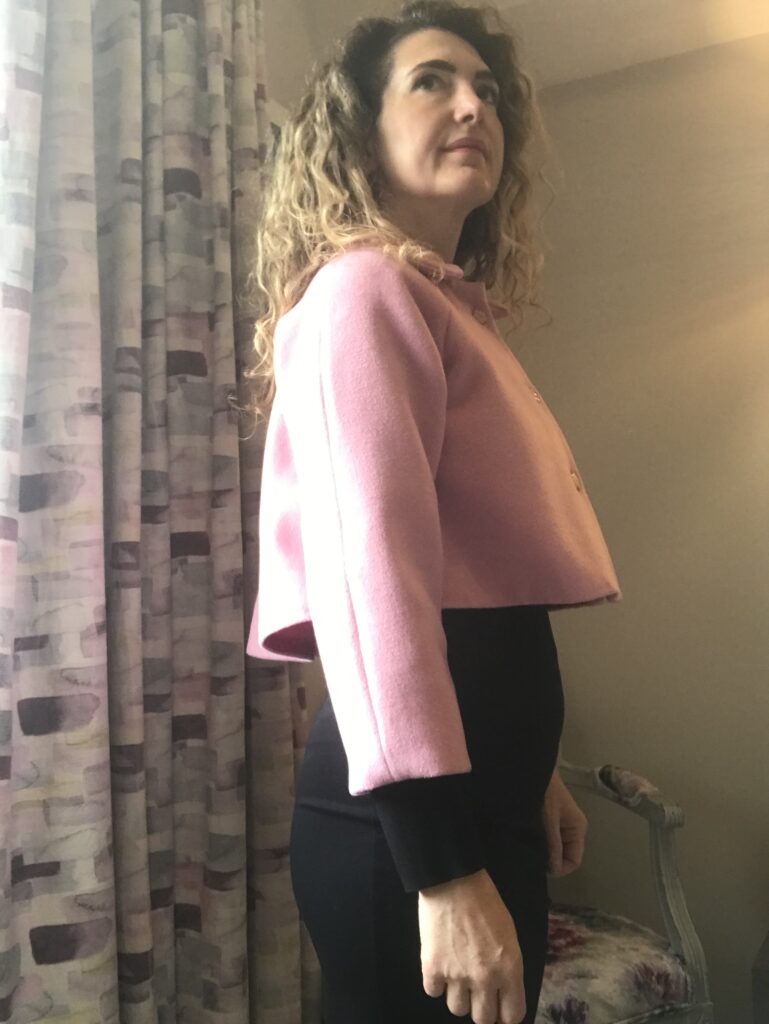
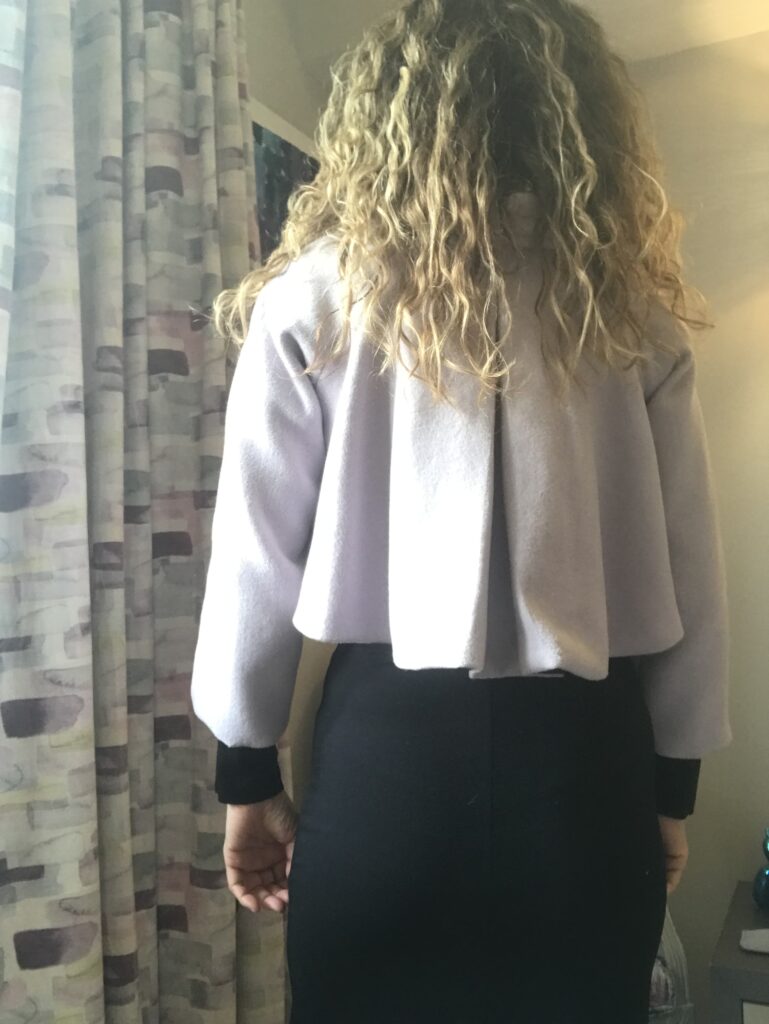
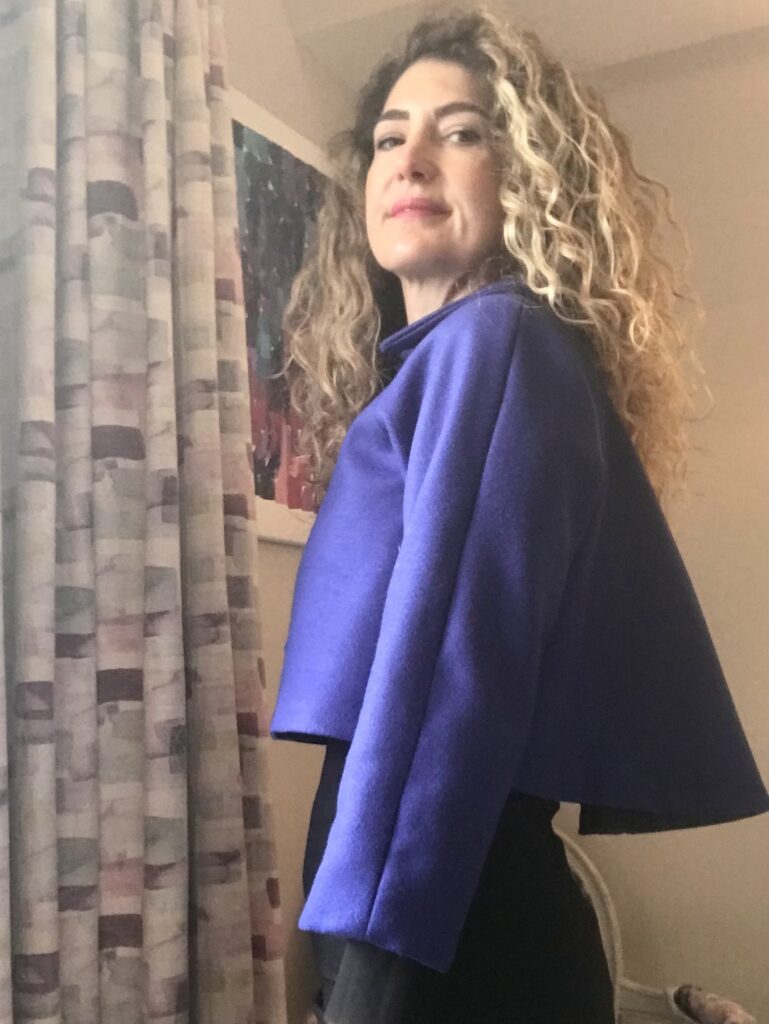
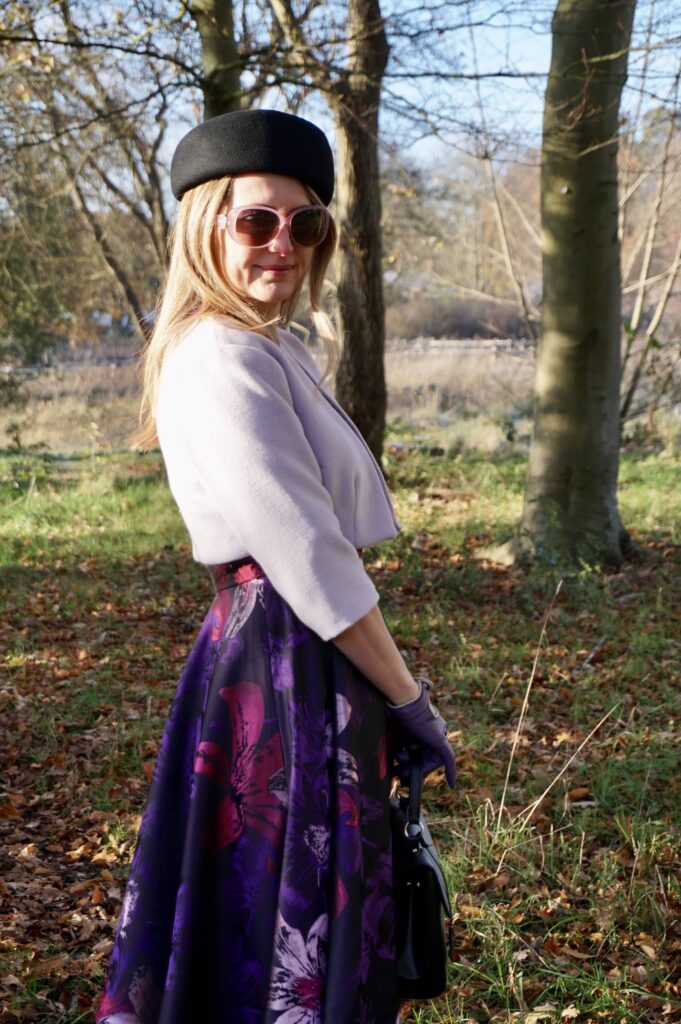

Conclusion
As you have probably guessed, I am absolutely over the moon with these coats. I still have three more colours of the Pop Wool and I am very tempted to turn them all into Swing Coats… Time will tell!
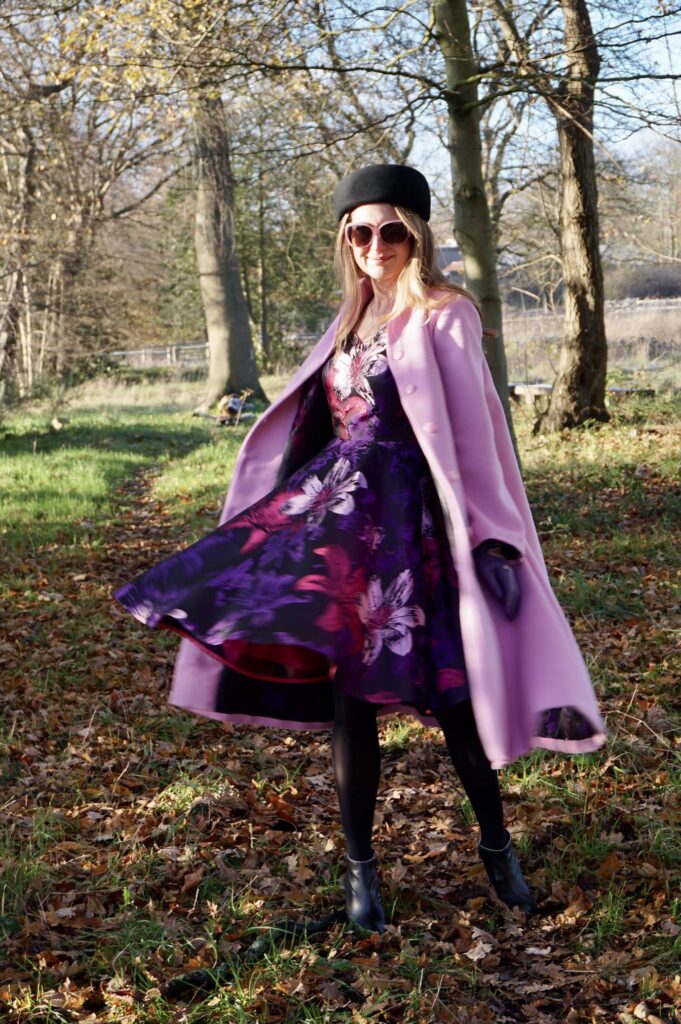
Sewing the M7974 dress for Autumn
I cannot believe I have neglected my beloved blog for so long! The weather has been for too gloomy for outside picture. And life has been busier and more stressful than ever (we are building a house, do I need to say more?)… Never mind, here I am with a new version of the M7974 dress, in a perfect Autumn palette:
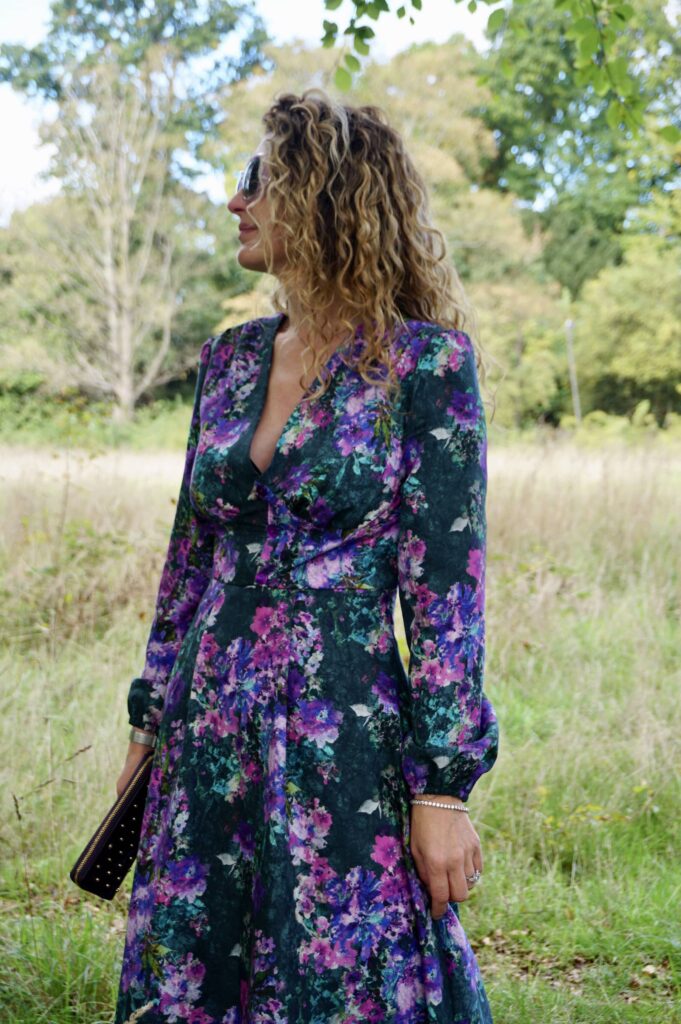
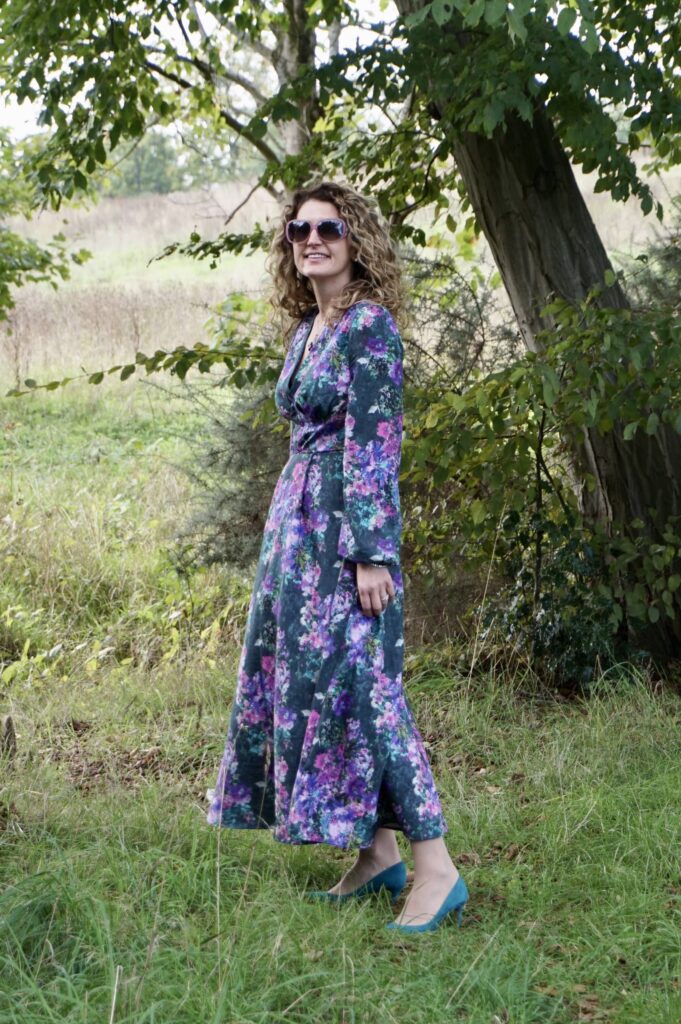
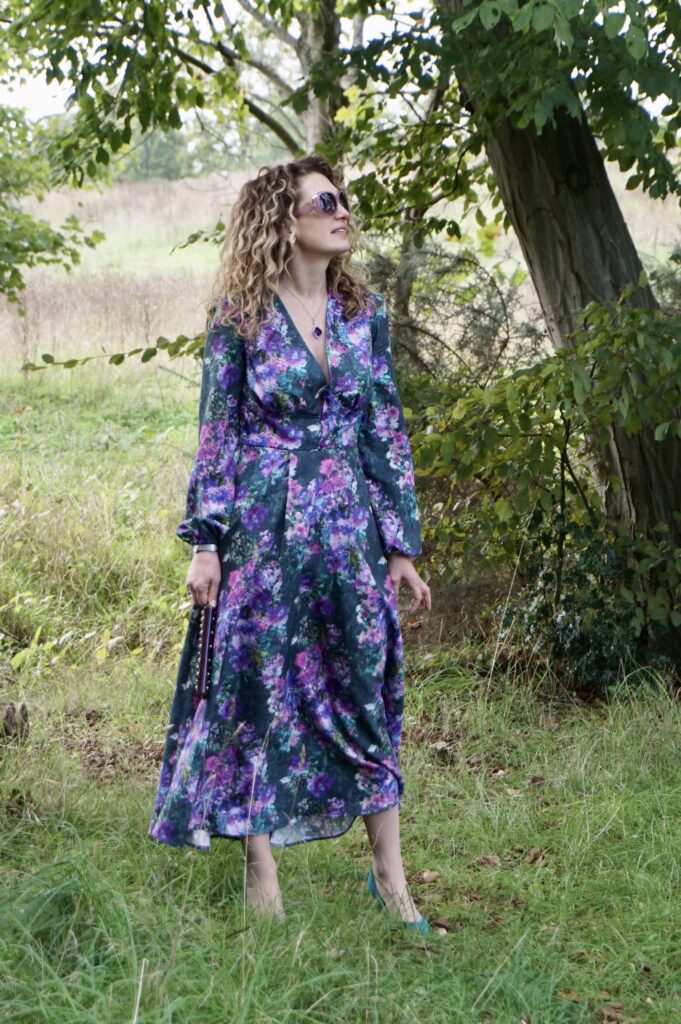
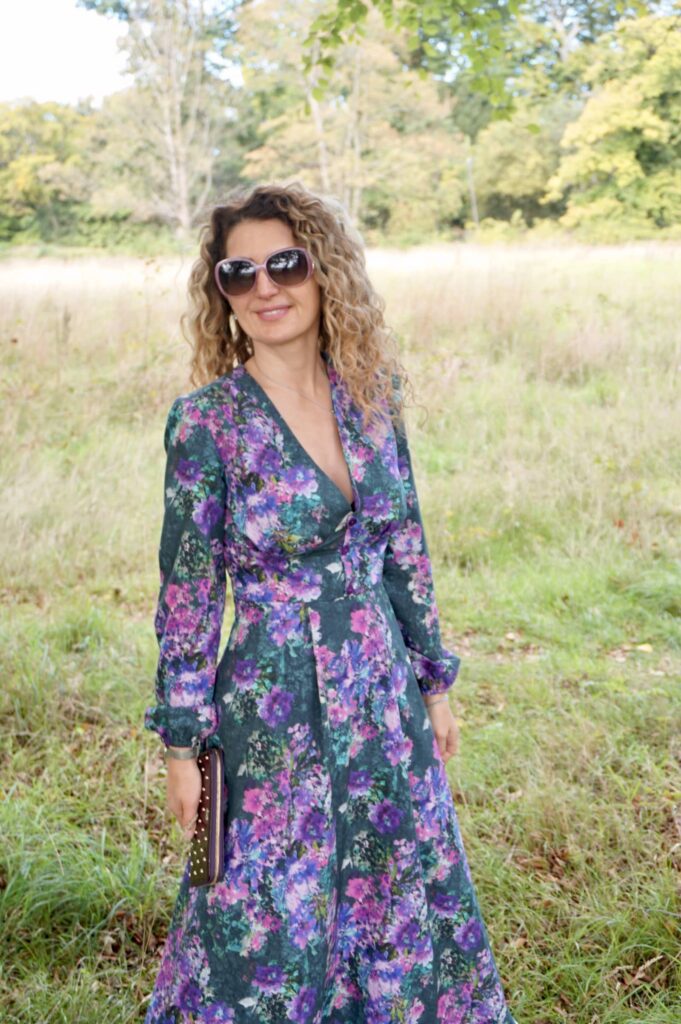
Before you ask, the fabric is a gorgeous silk crepe from Selvedge & Bolt. I boughtit as a pre-order in June and sadly not available anymore. It has all my favourite colours and I am in absolute awe!
M7974 pattern review
The M7974 dress pattern was published a few years ago, when romantic buttoned dress were all the rage. It was immensely successful and followed by many (many many) other similar patterns – such as the Orchidee Dress by Deer & Doe and the Millions Button Dress by Daria Pattenmaking.
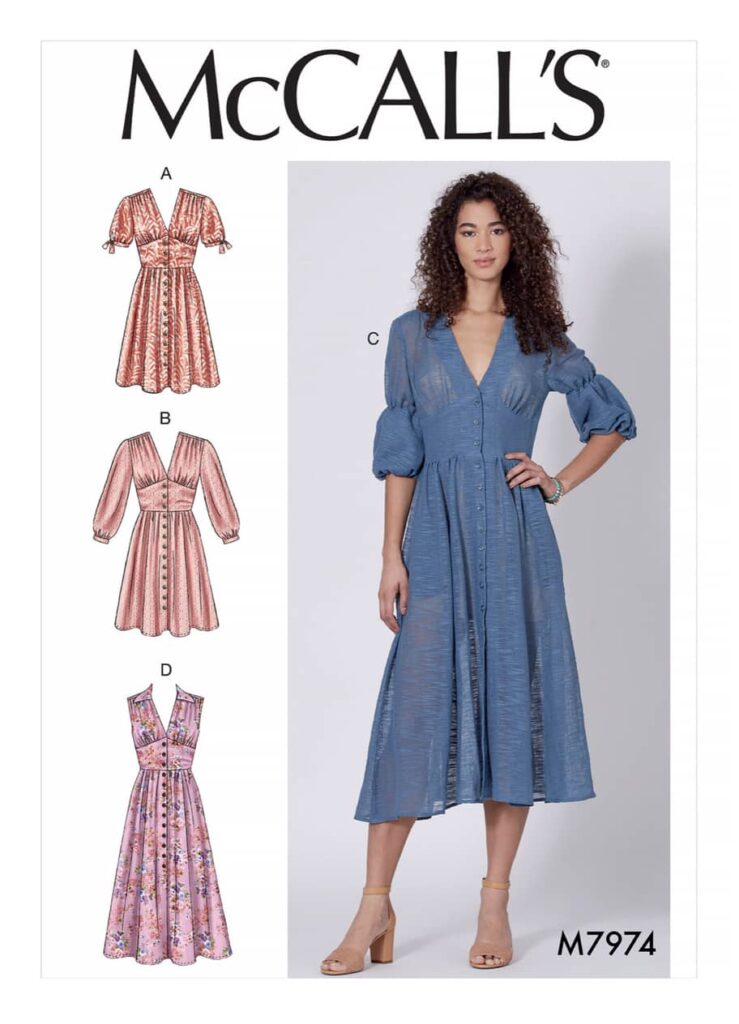
My major reservation about this type of dress is the bust fit. For the dress to sit perfectly at the bust, either you are lucky to be the perfect patterned bust cup. Or (more likely) you will need to peform a FBA (full bust adjustment) or SBA (small bust adjustment), as none of the patterns are offered with cup options.
For my first version of this pattern, I made no FBA and you can see that the bust seam sits too high. What you cannot see is that I have very little room to move my arms…
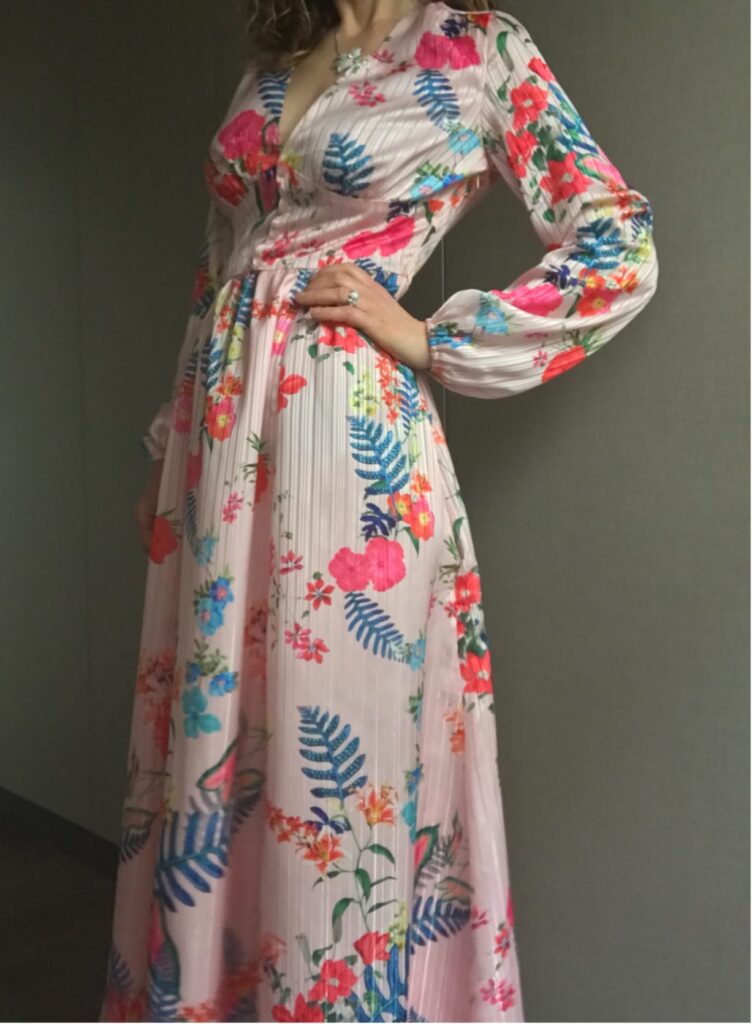
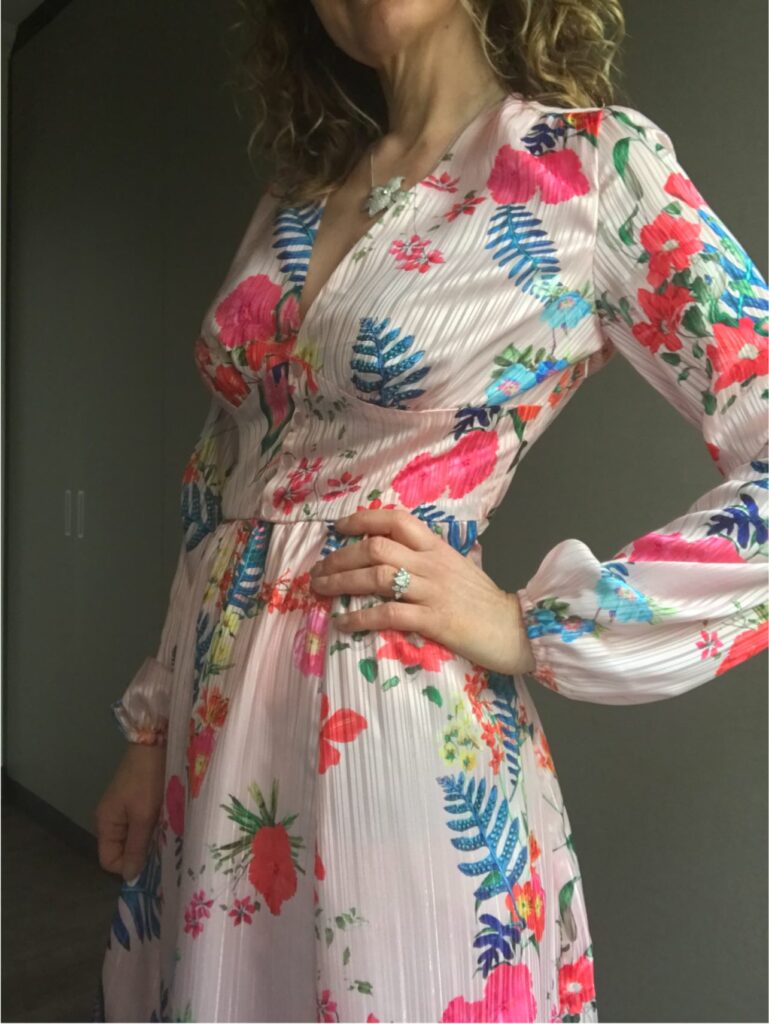
For my second version, I improvised a FBA but it lowered the décolletage to uncomfortable levels… without lowering the bust line enough, very annoying!
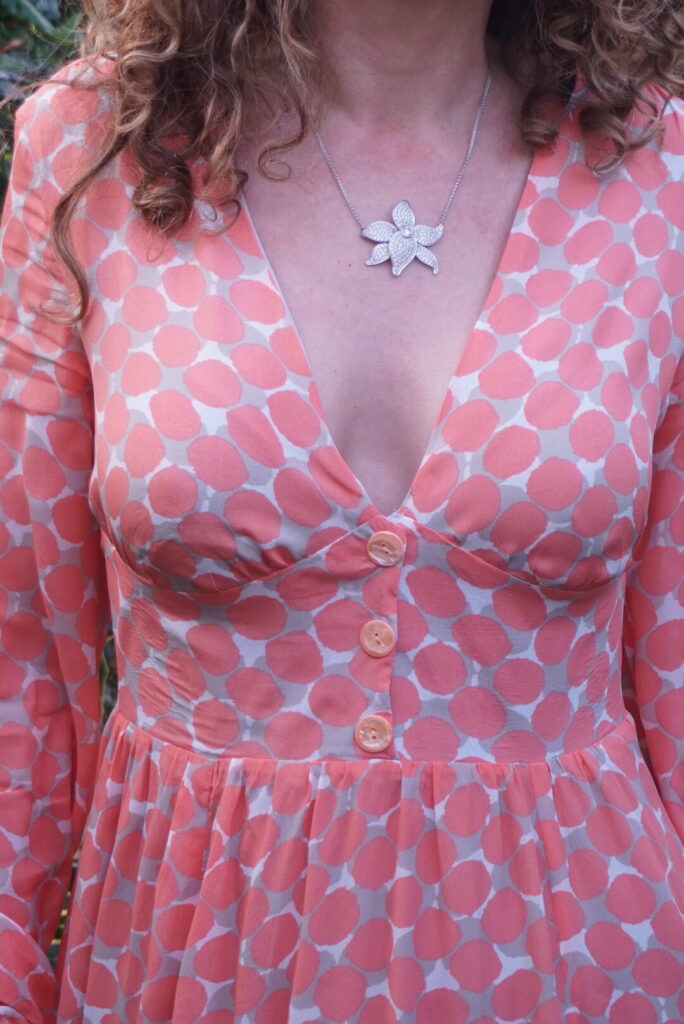
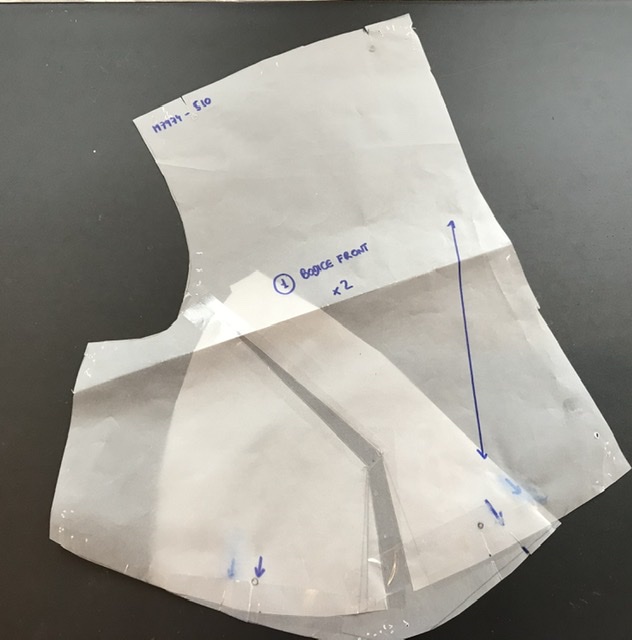
This time, not only did I allow more room in the upper part of the bodice; but I also took room off in the lower part, which seems to have done the trick… It only took me three years to get it right!

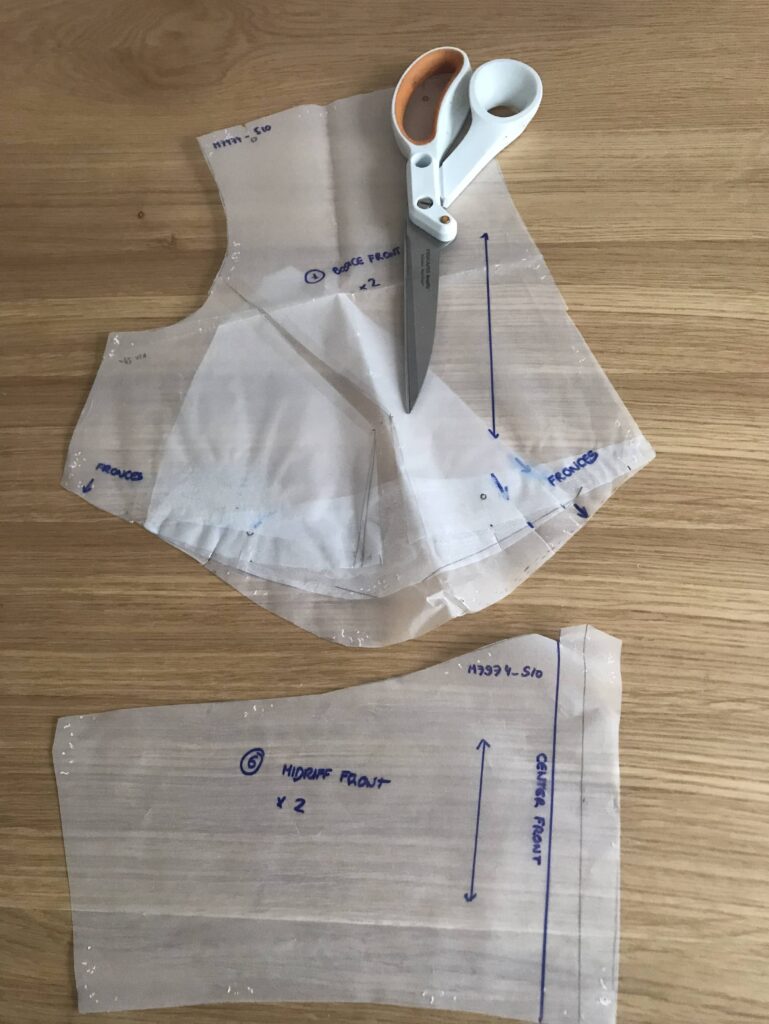
A few changes I made to the pattern
Appart from the FBA, the other changes I made versus the original pattern are the following:
- I used the skirt from the V9253 dress, which I find utterly flattering with it elongated silouhette;
- I used the sleeves from the Magnolia dress, more appropriate for cold weather in my view.;
- and I added a side zip as I had given up the front buttons of the skirt.
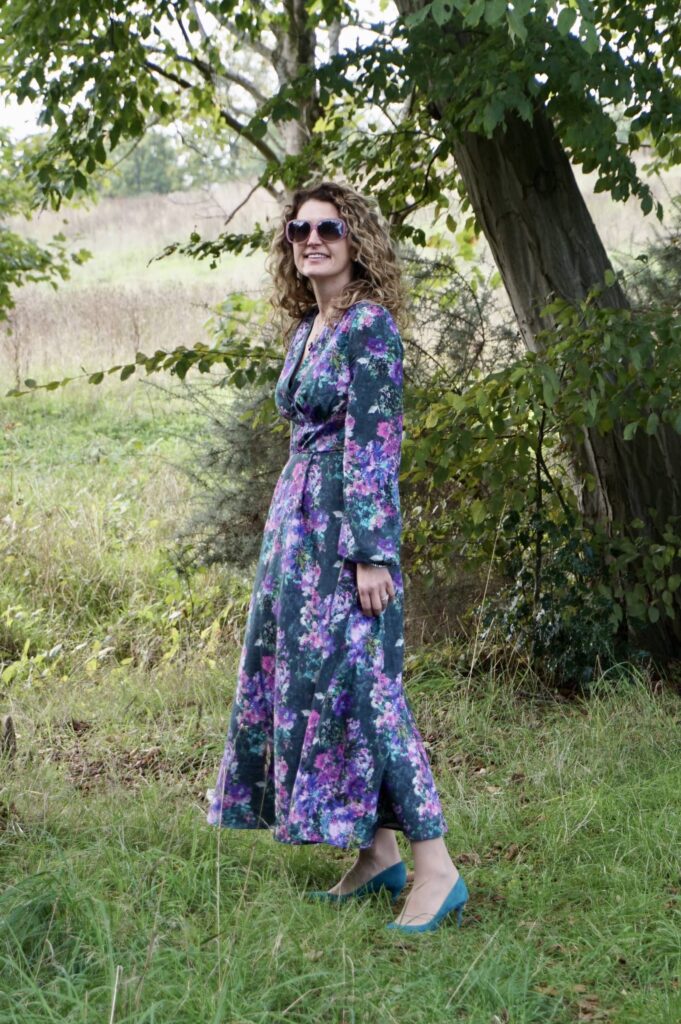
Conclusion
I am very happy with this dress and even happier to be back on the blog! Hopefully many more articles to follow soon, as I have been very productive in the atelier!
